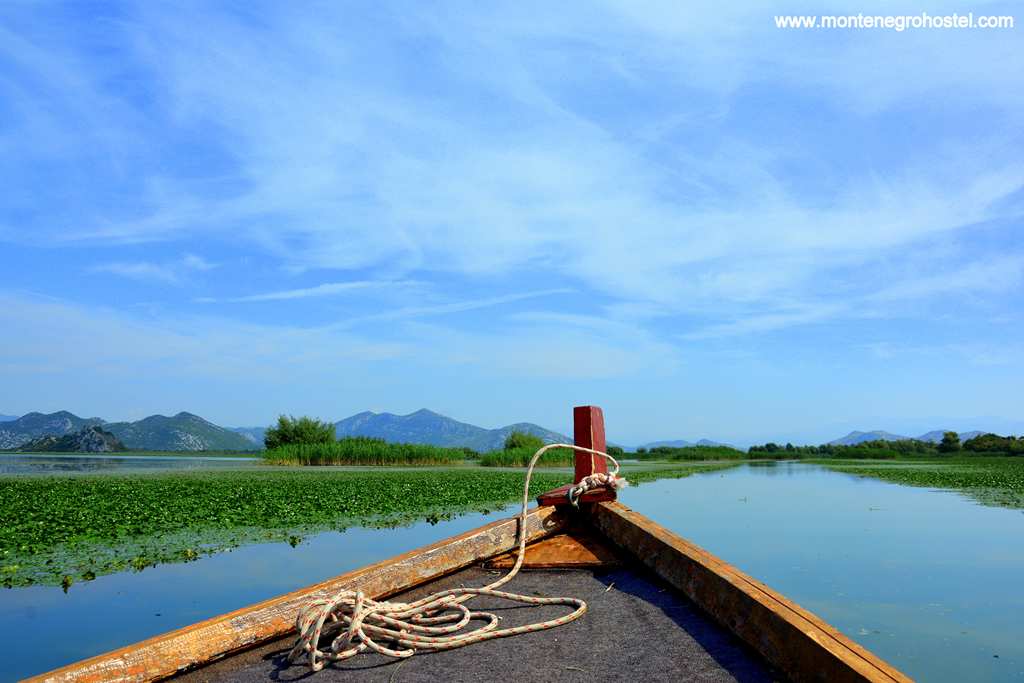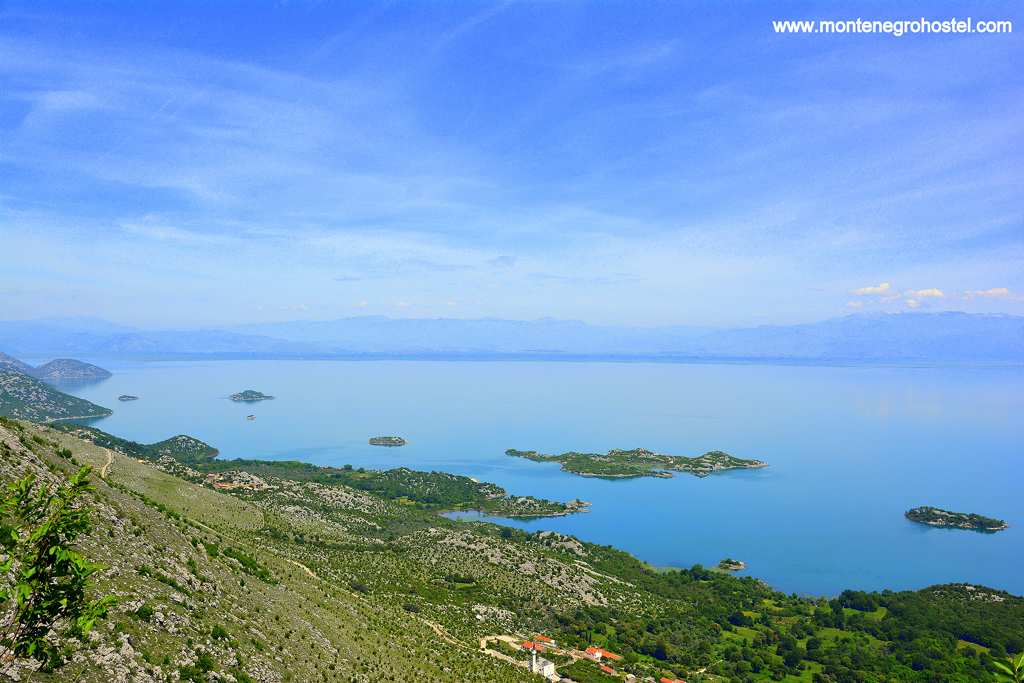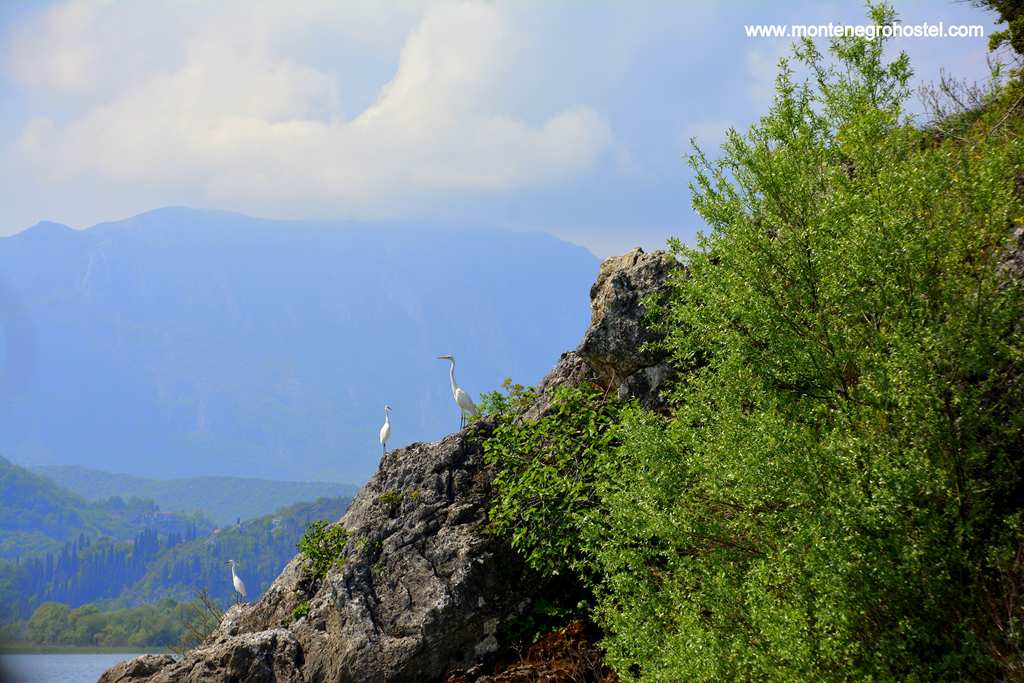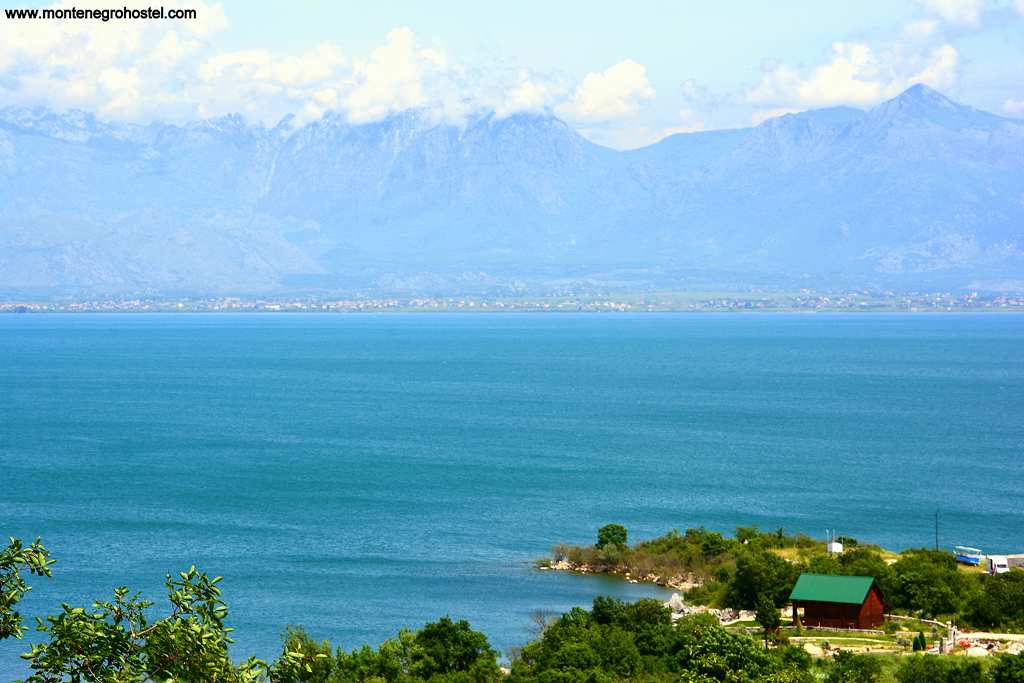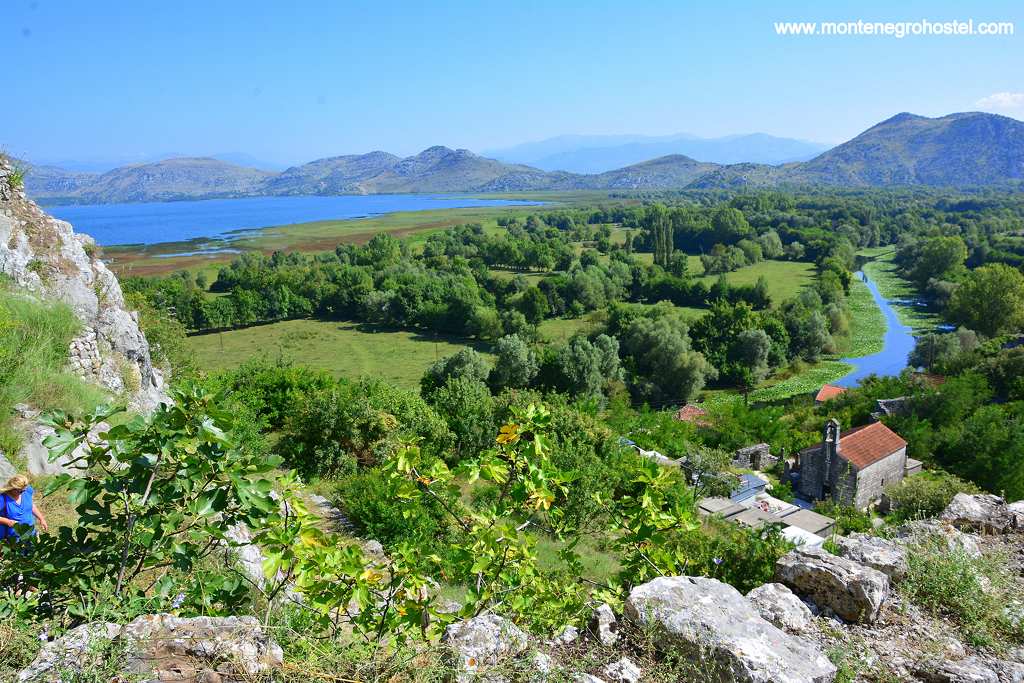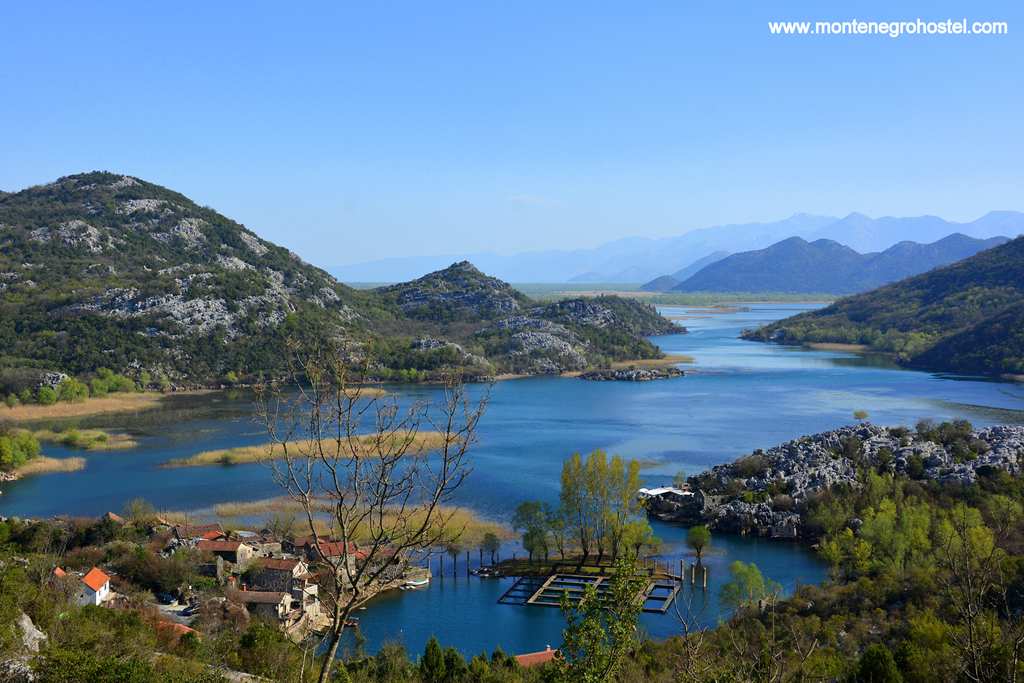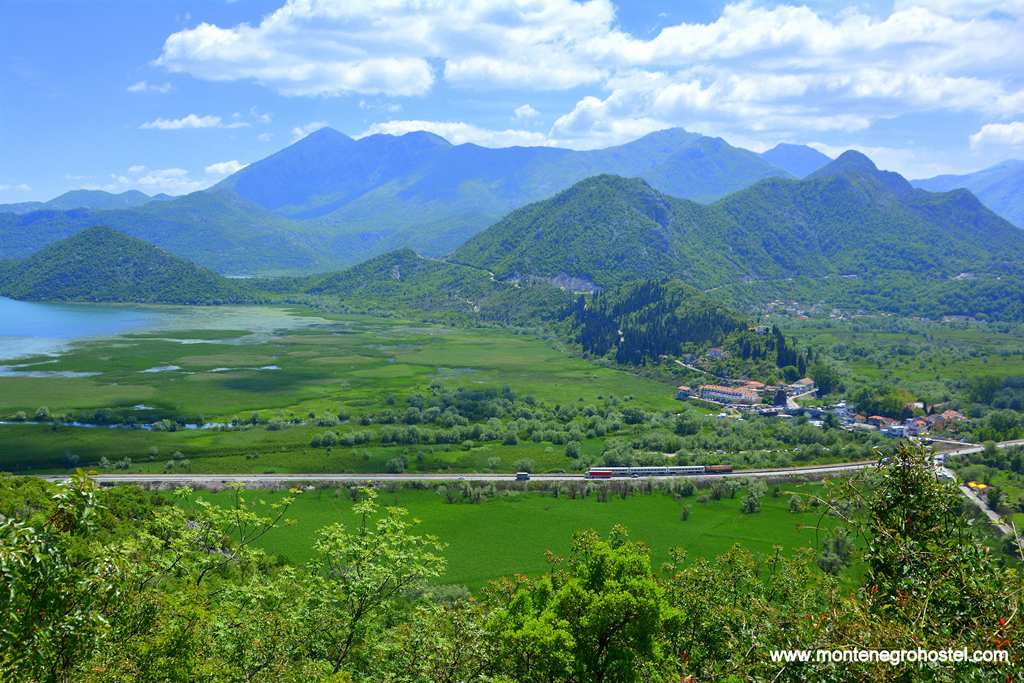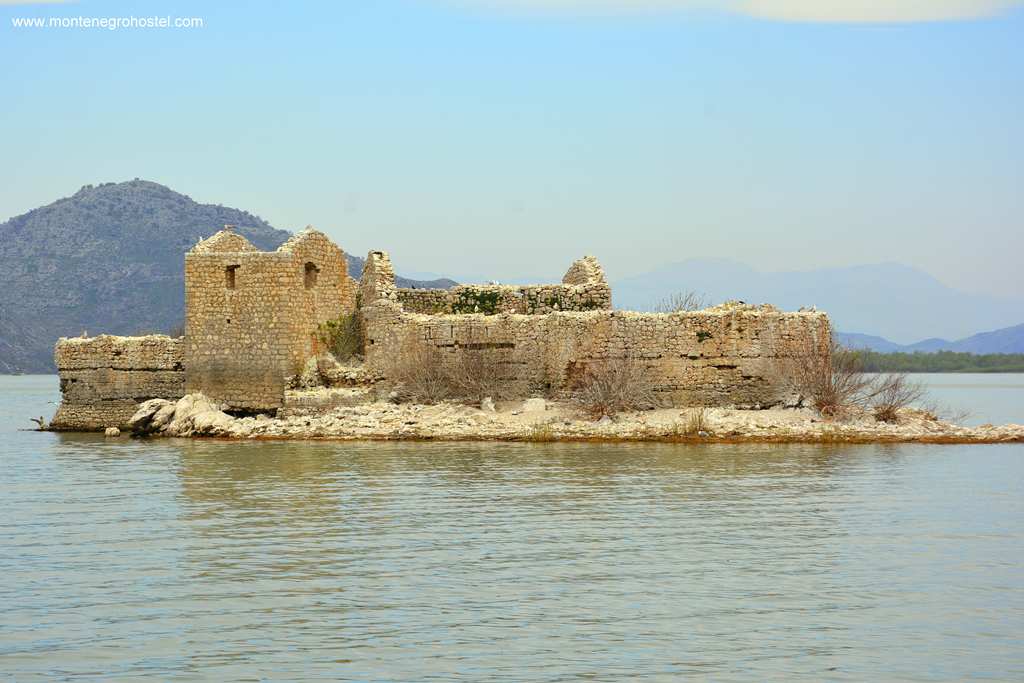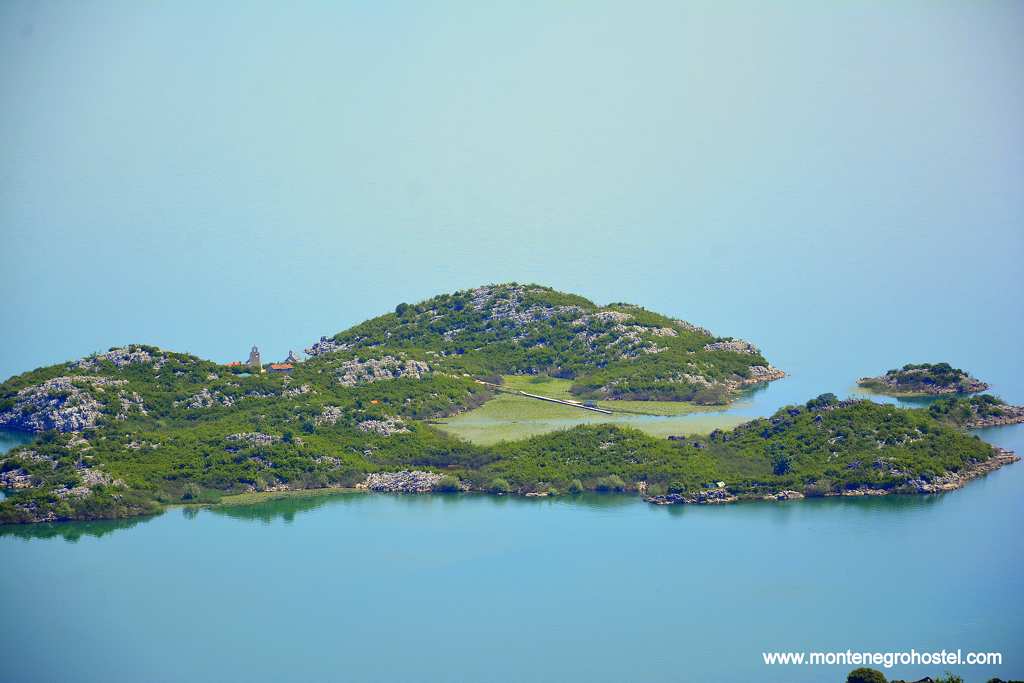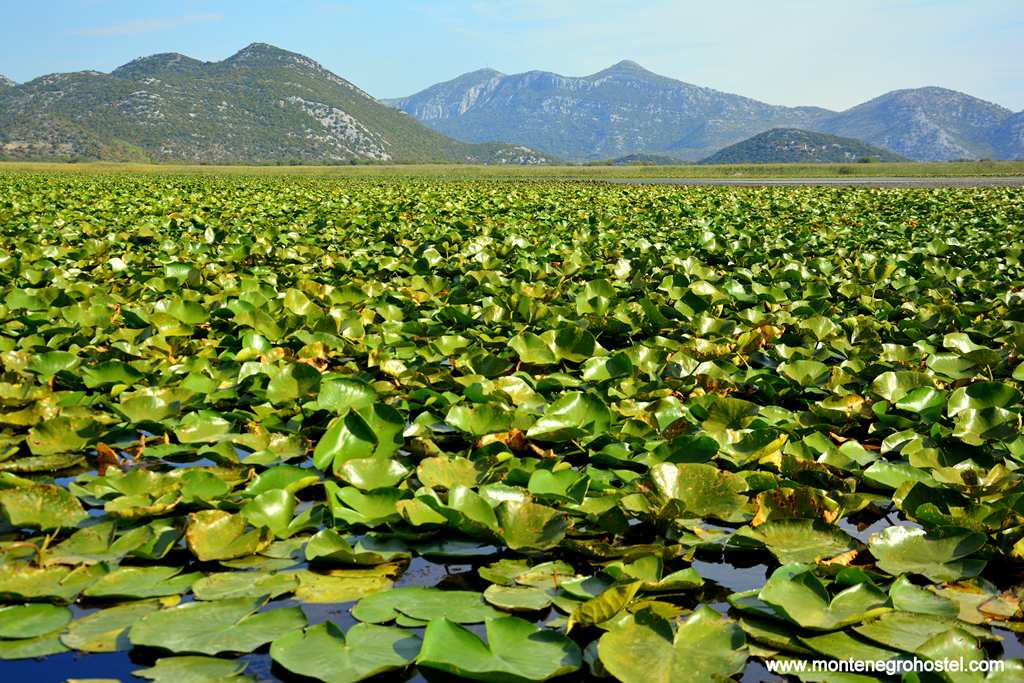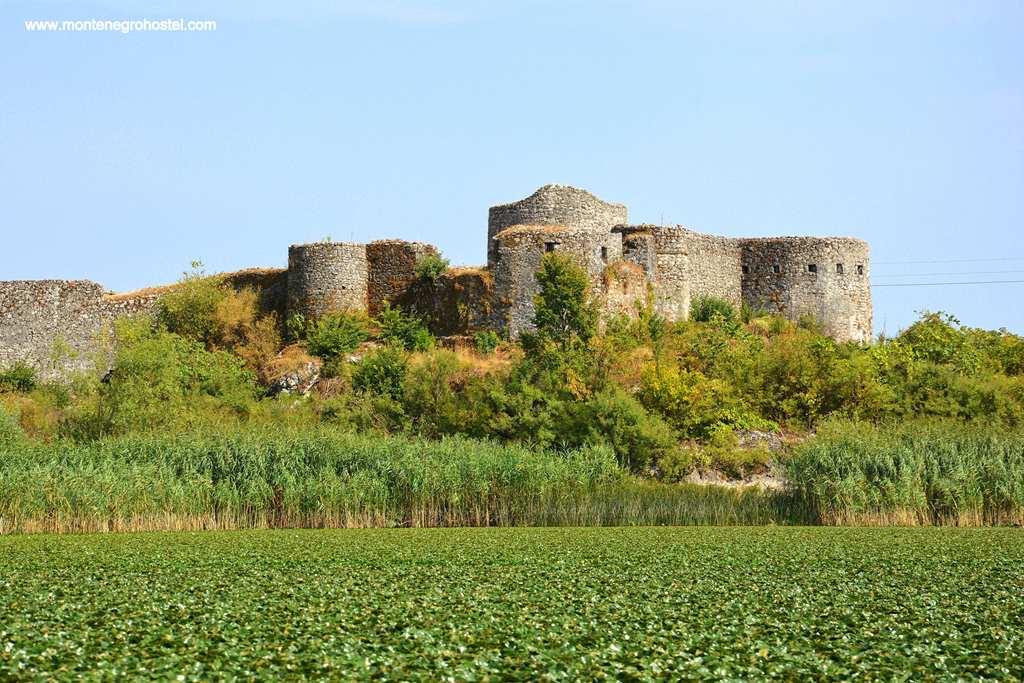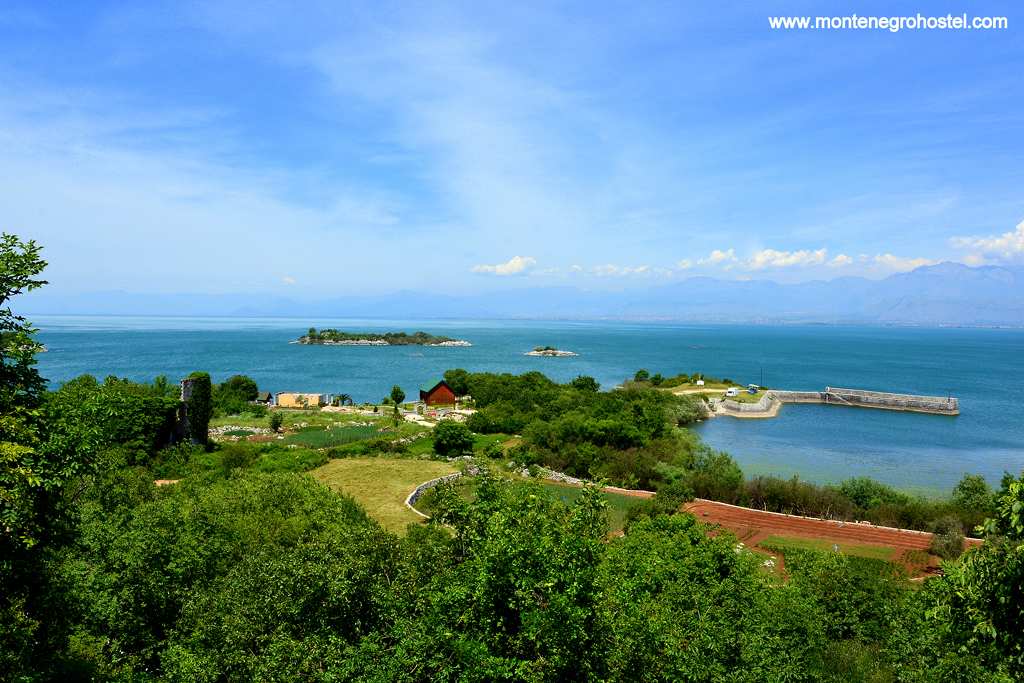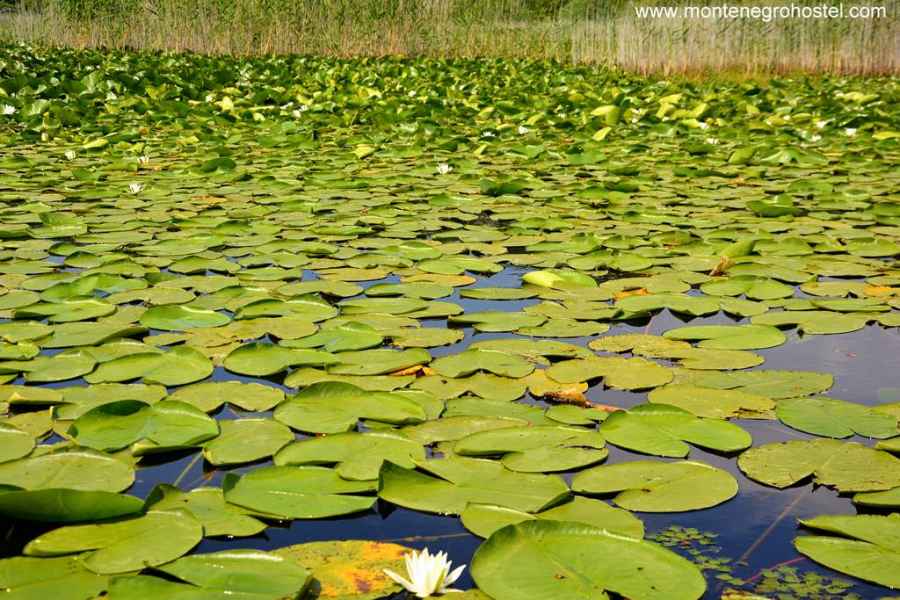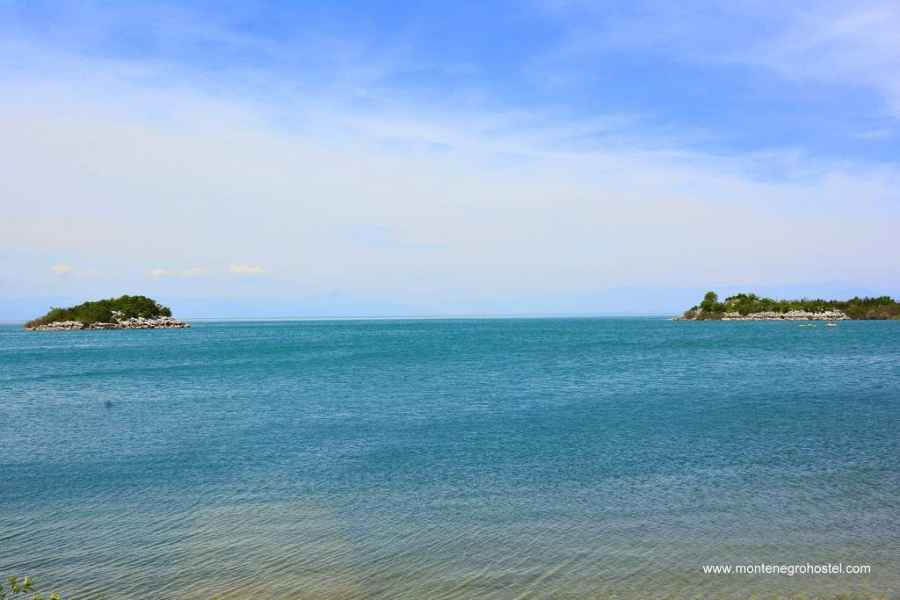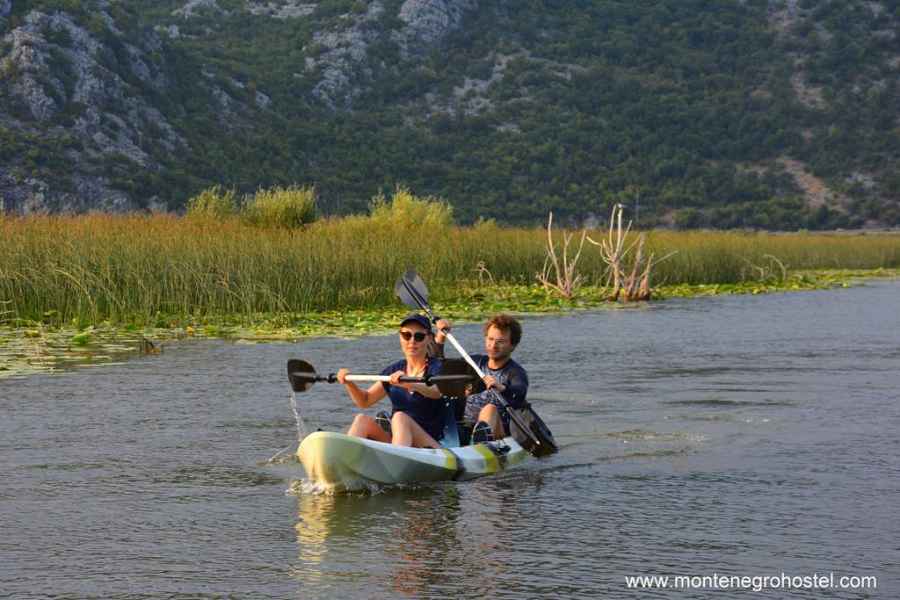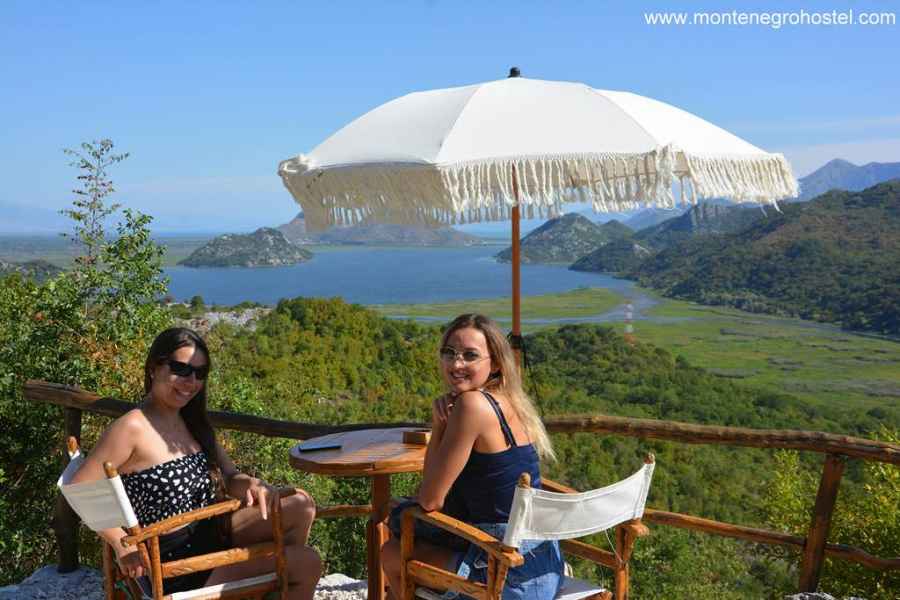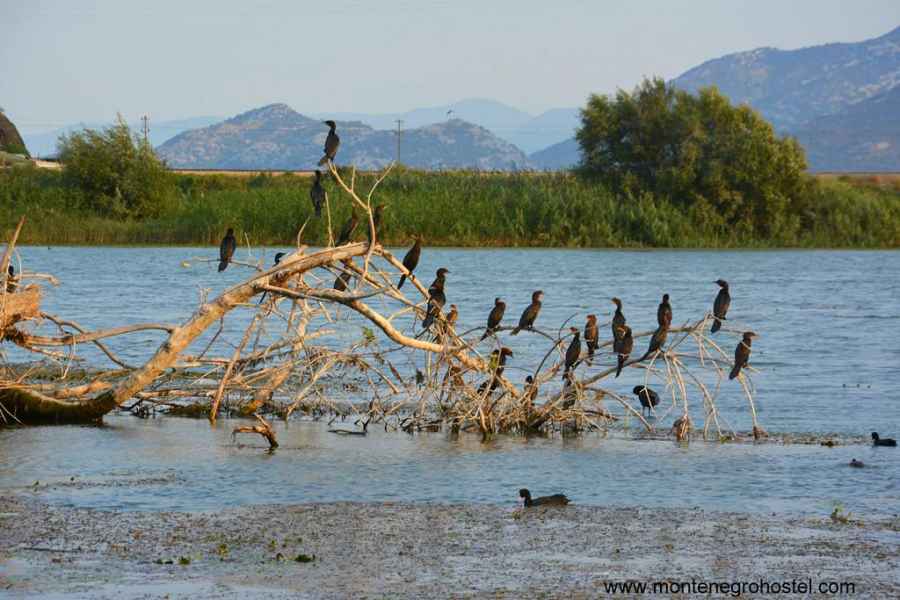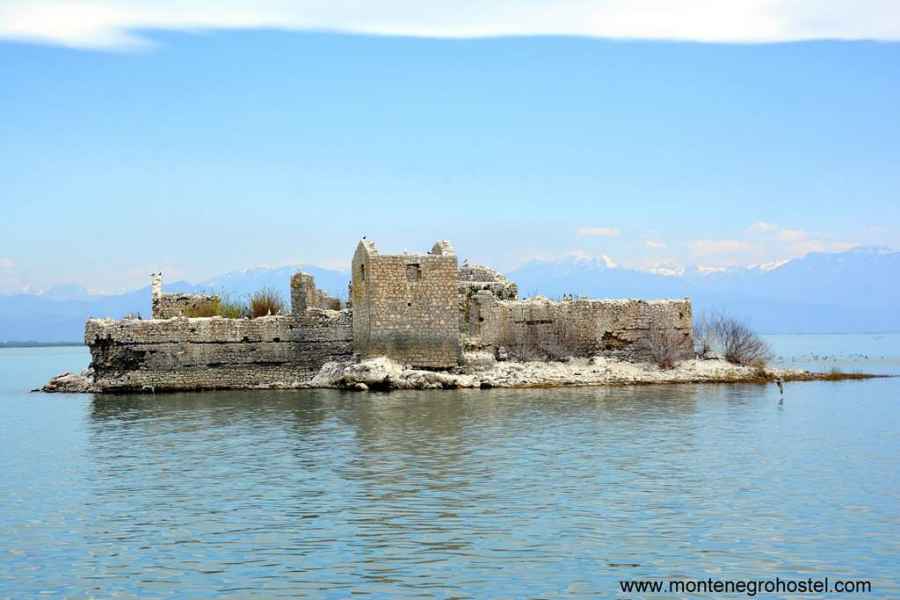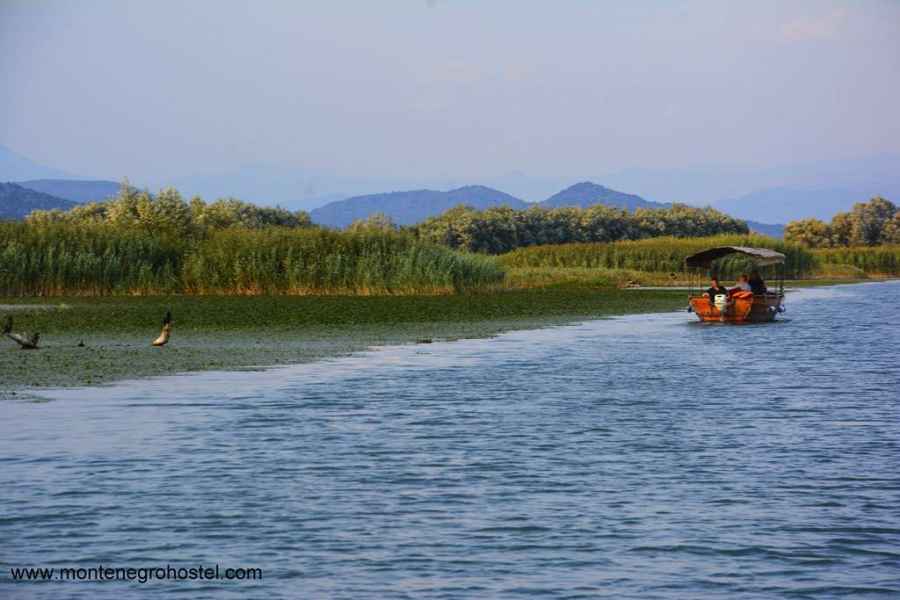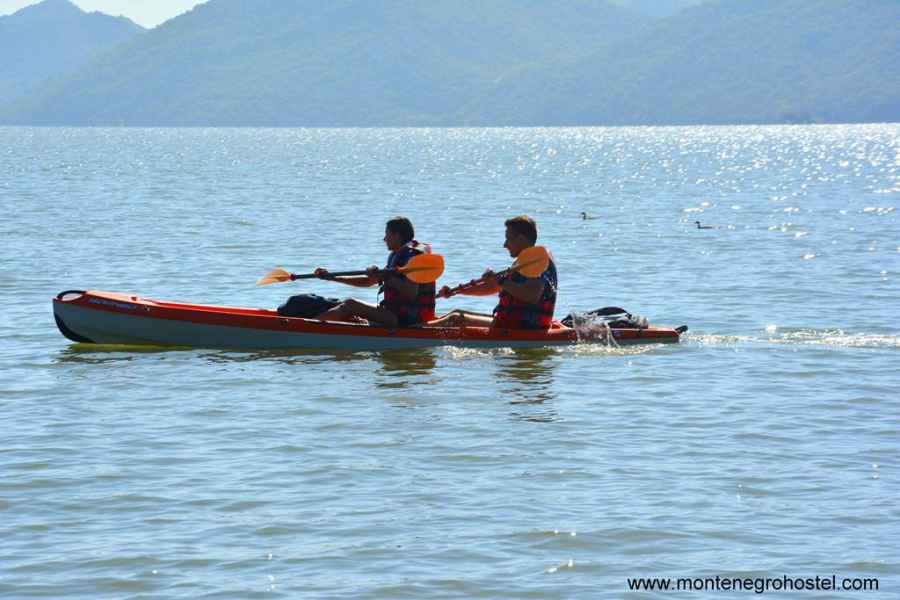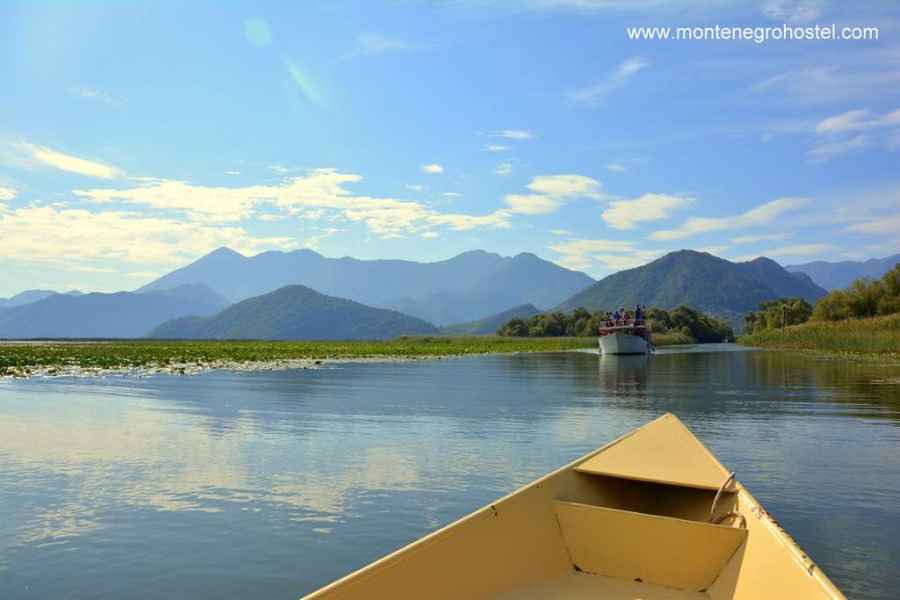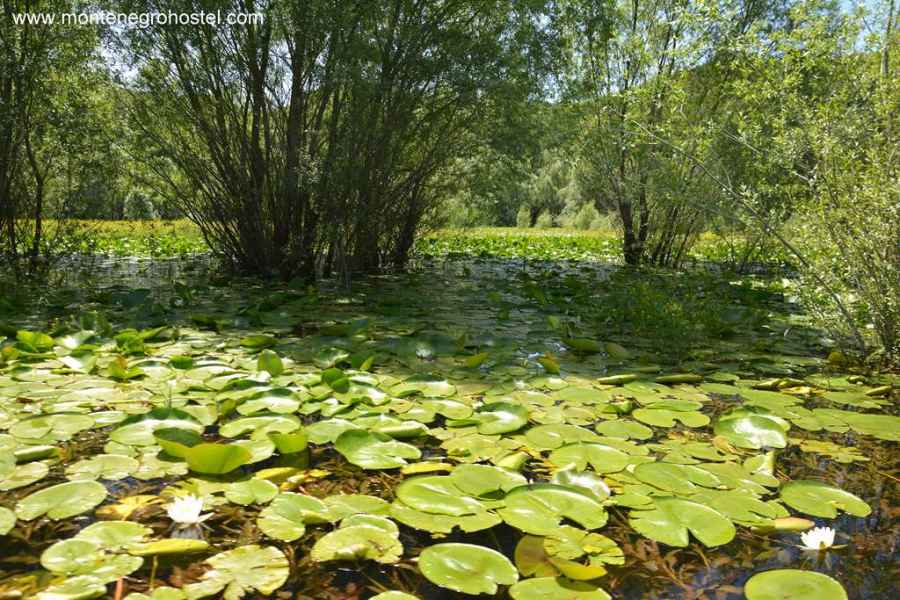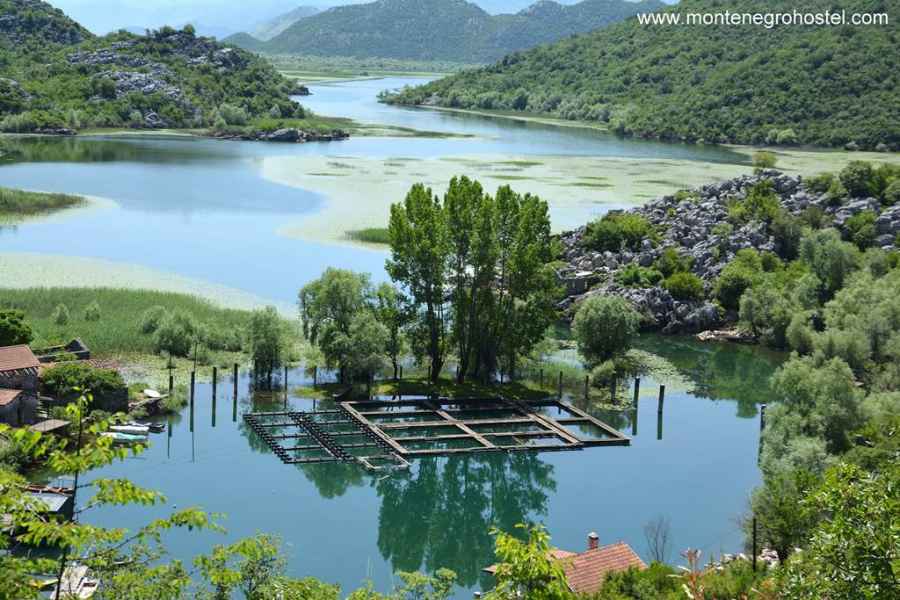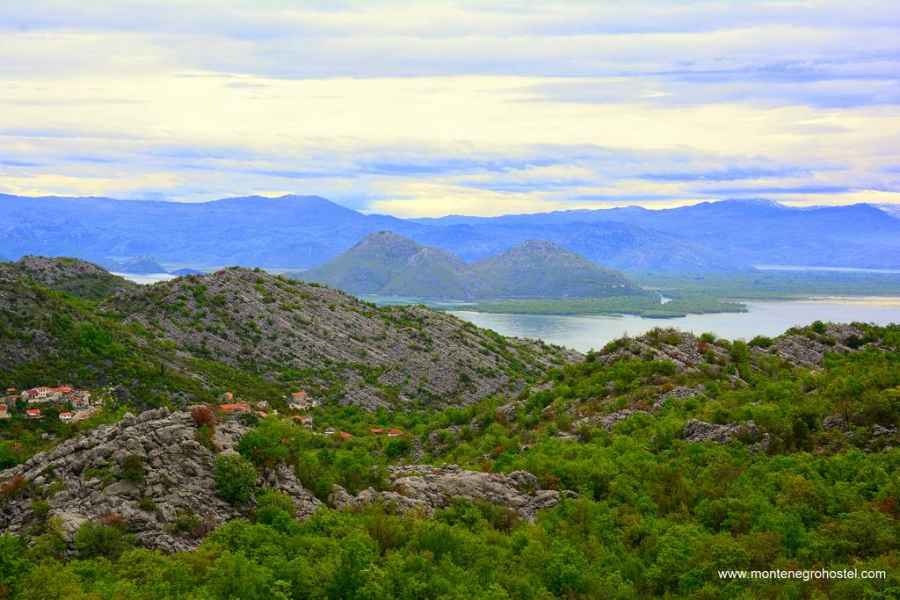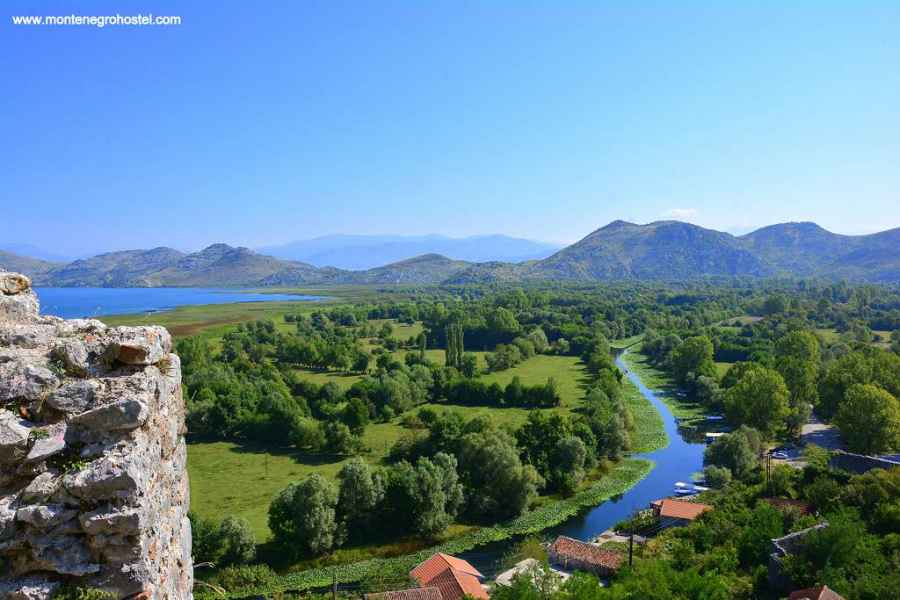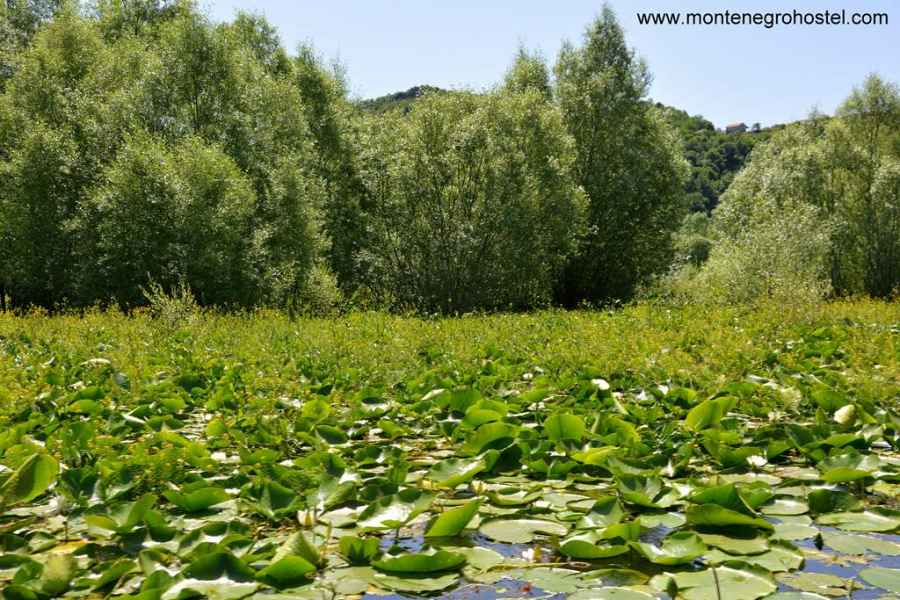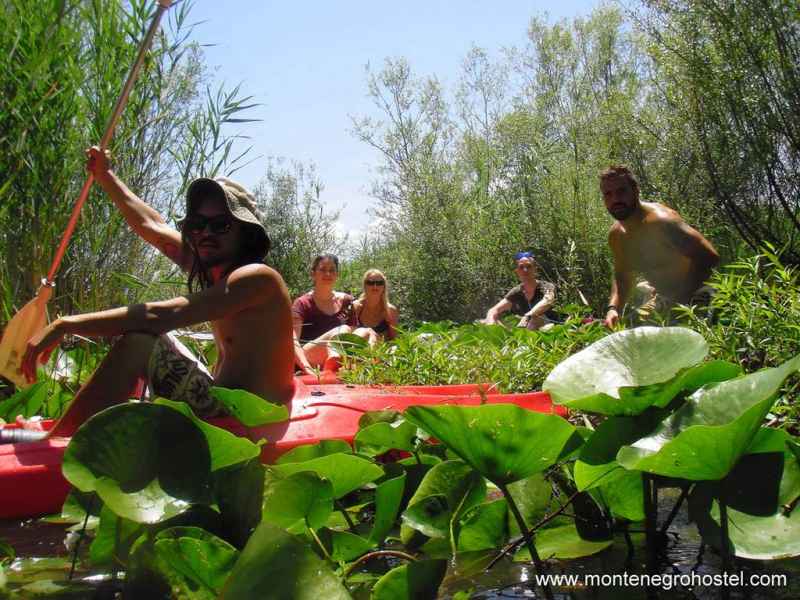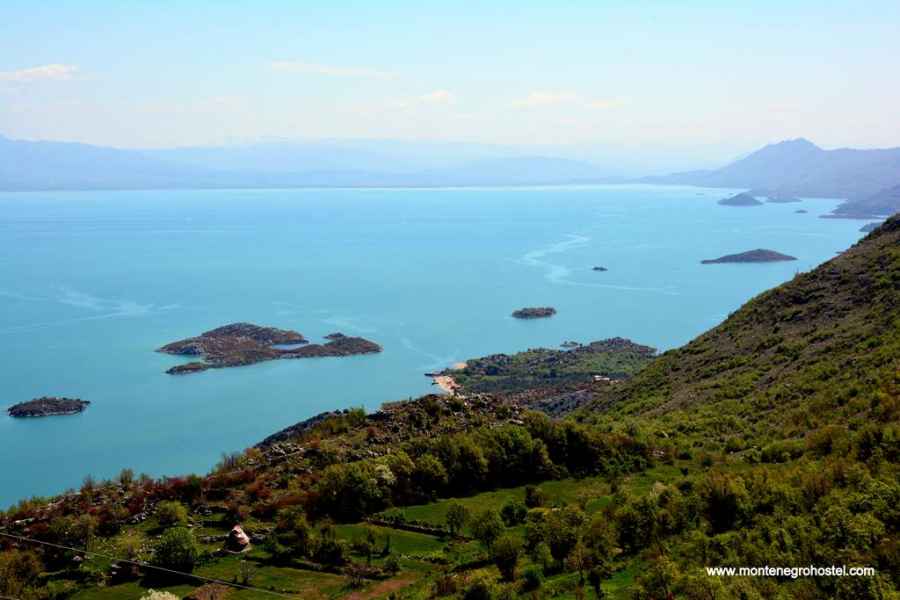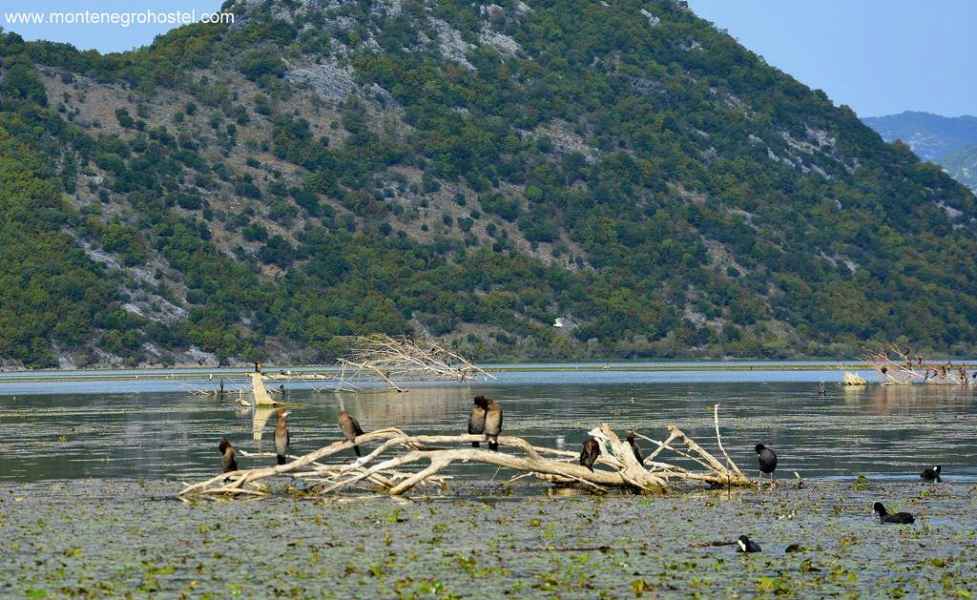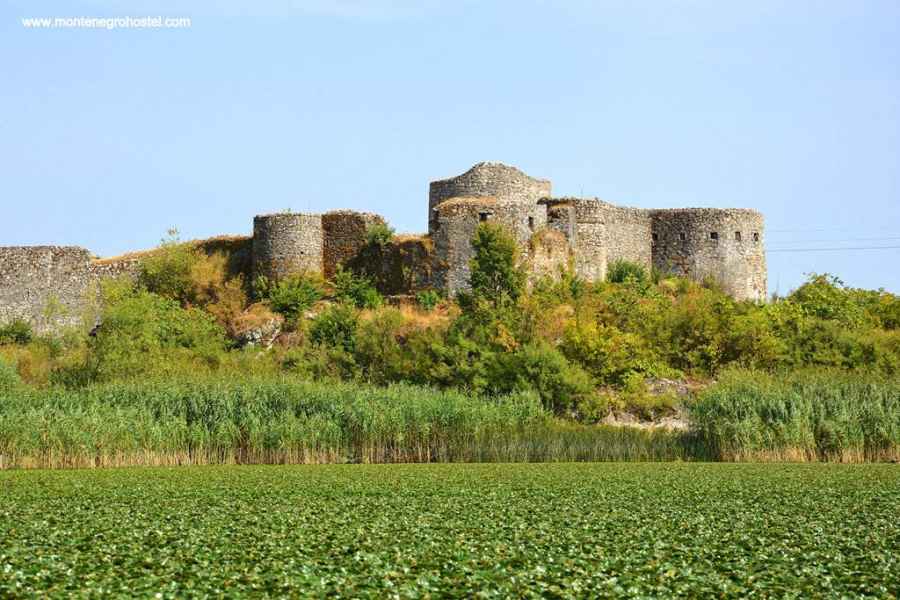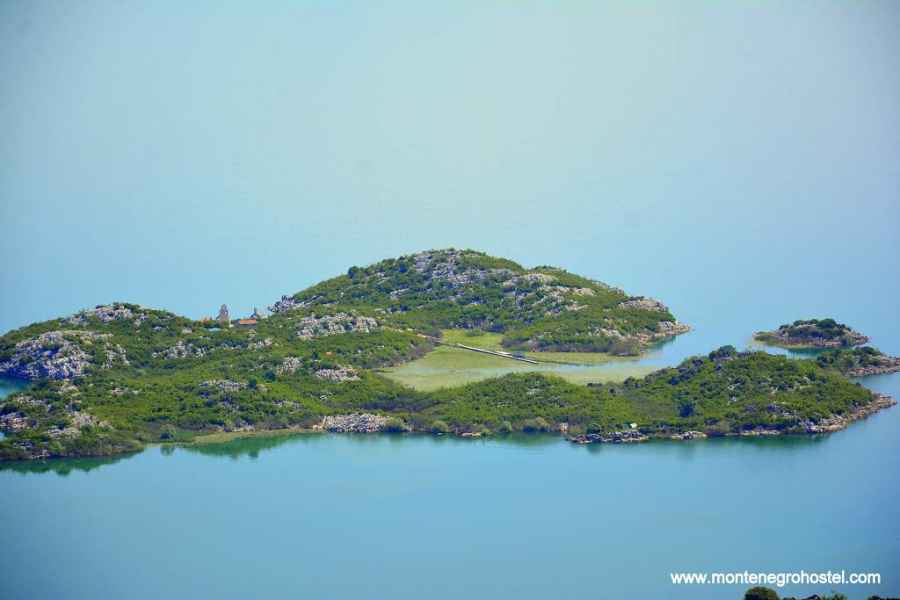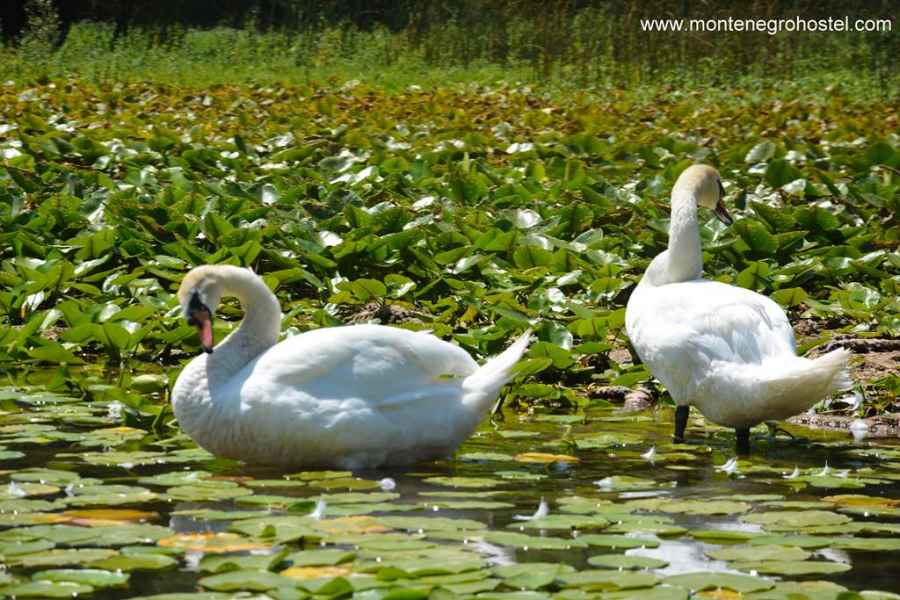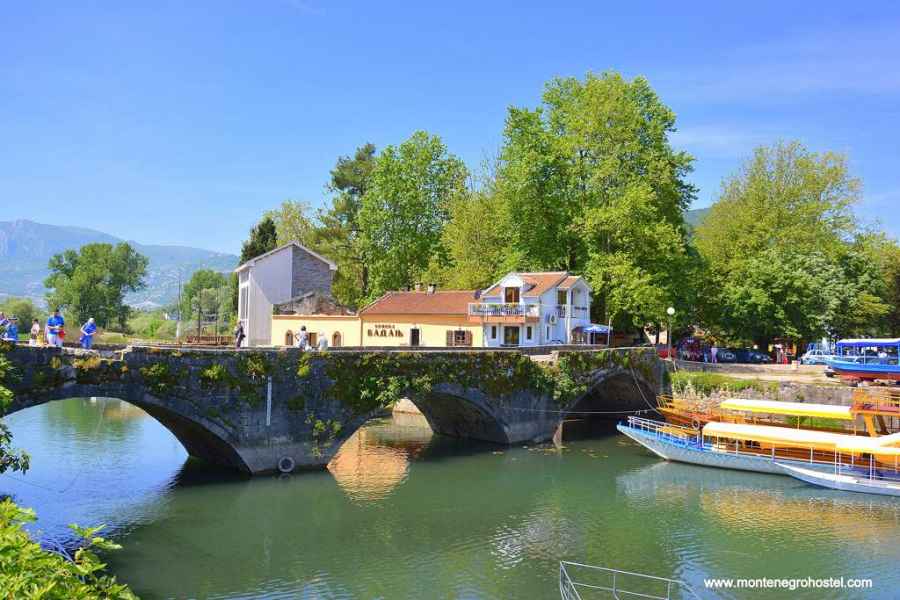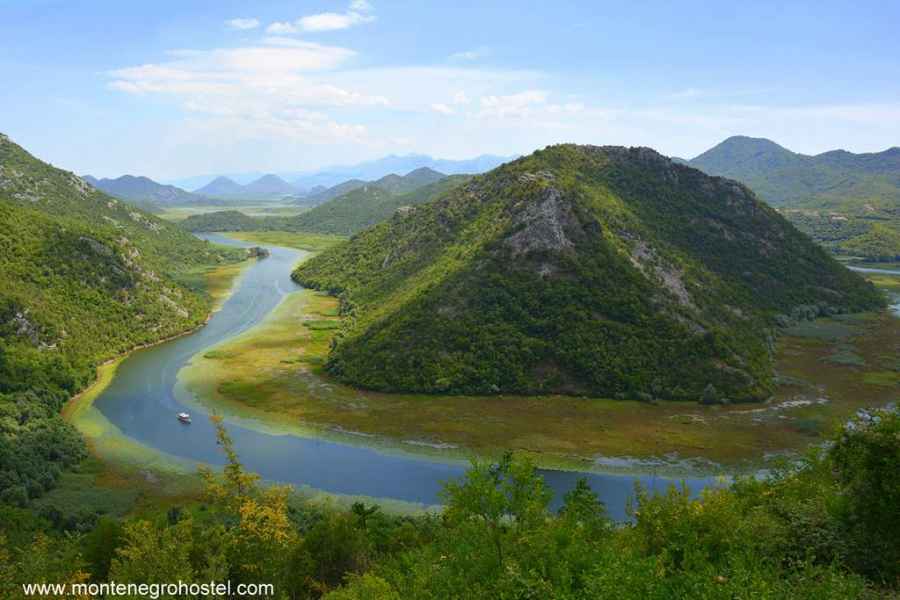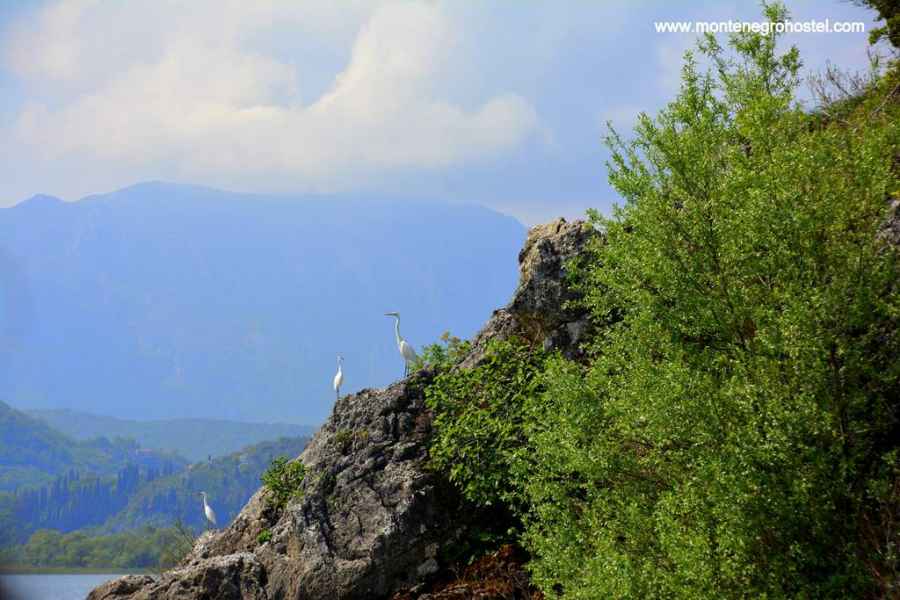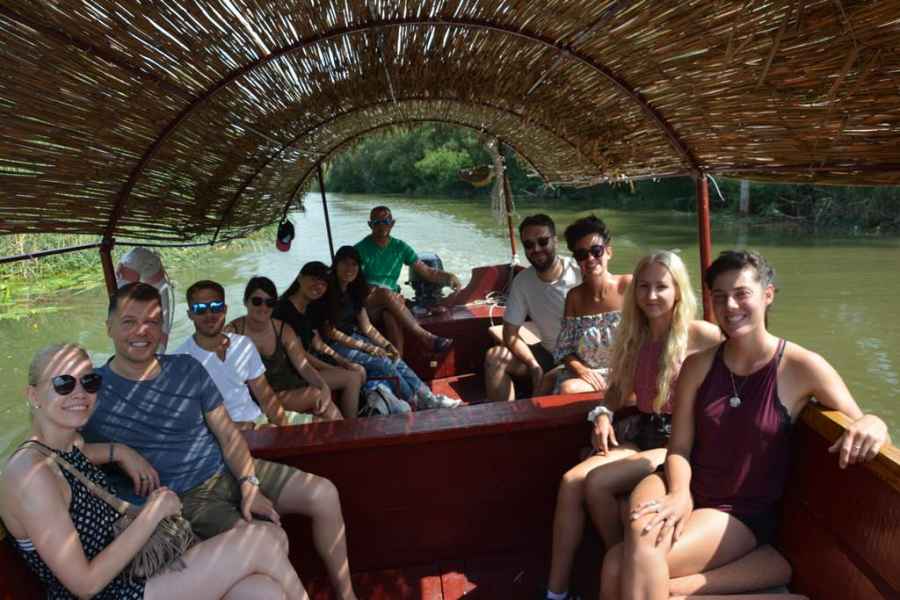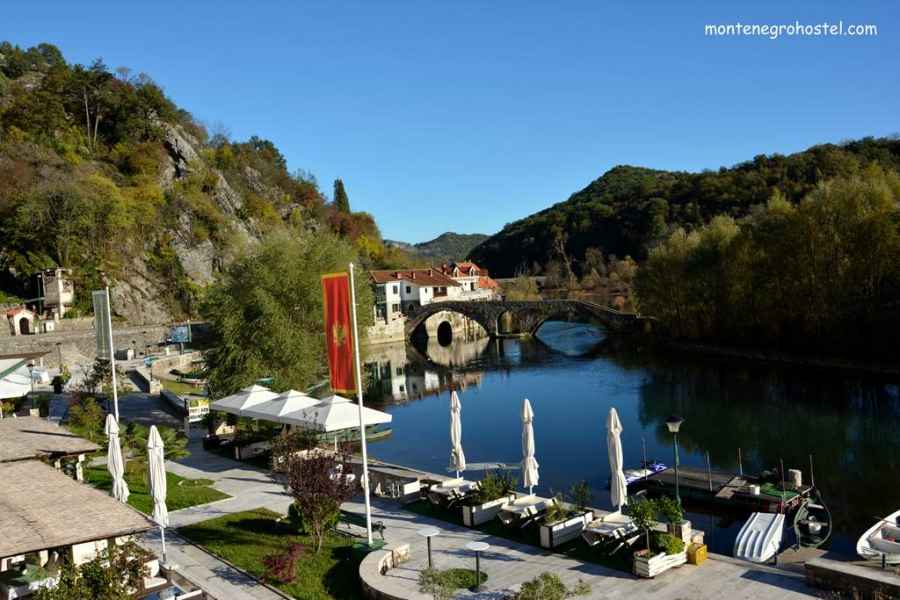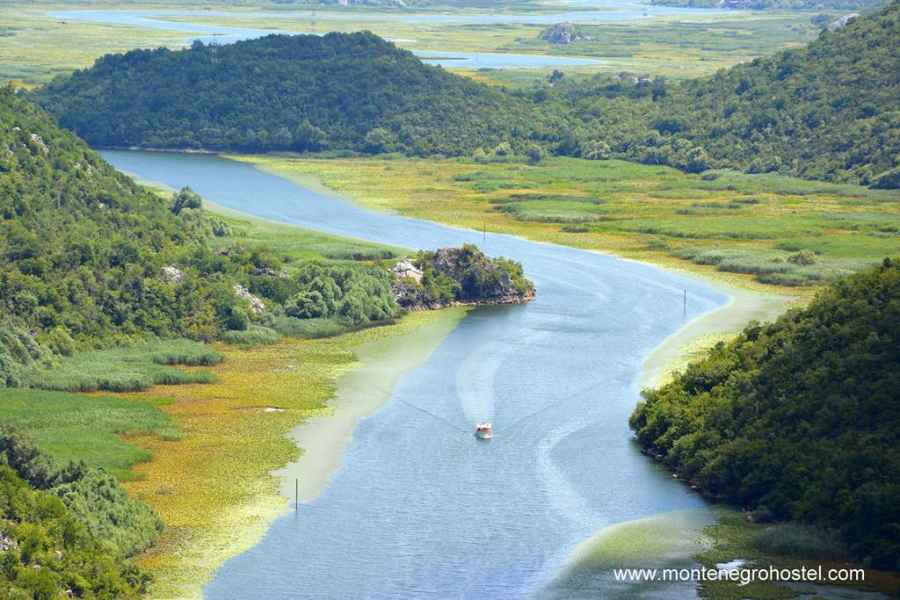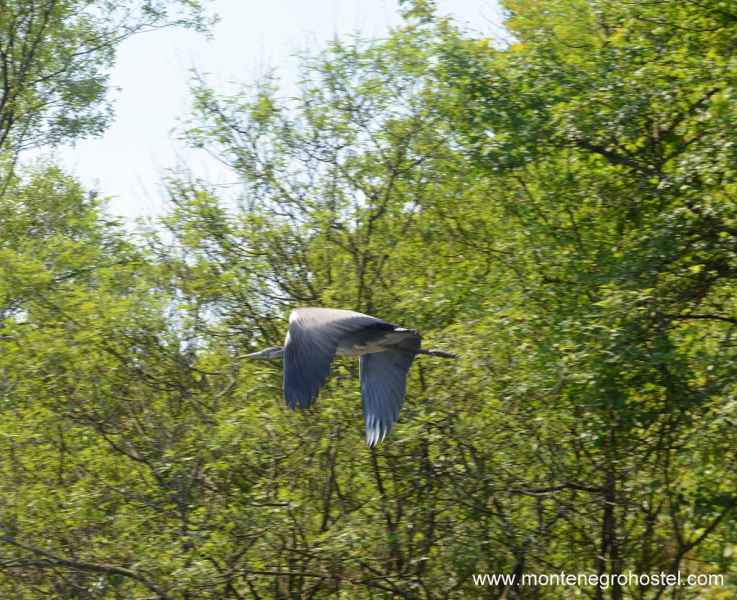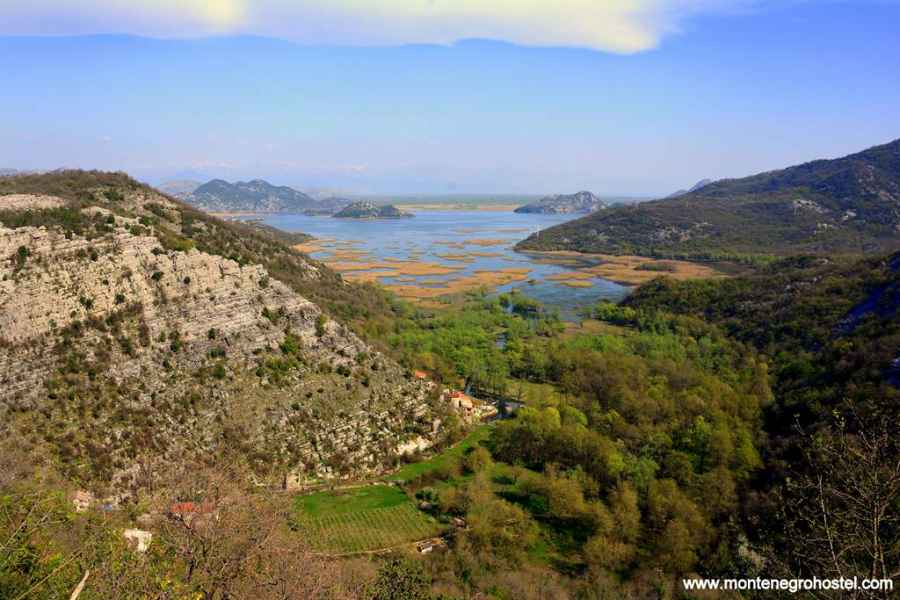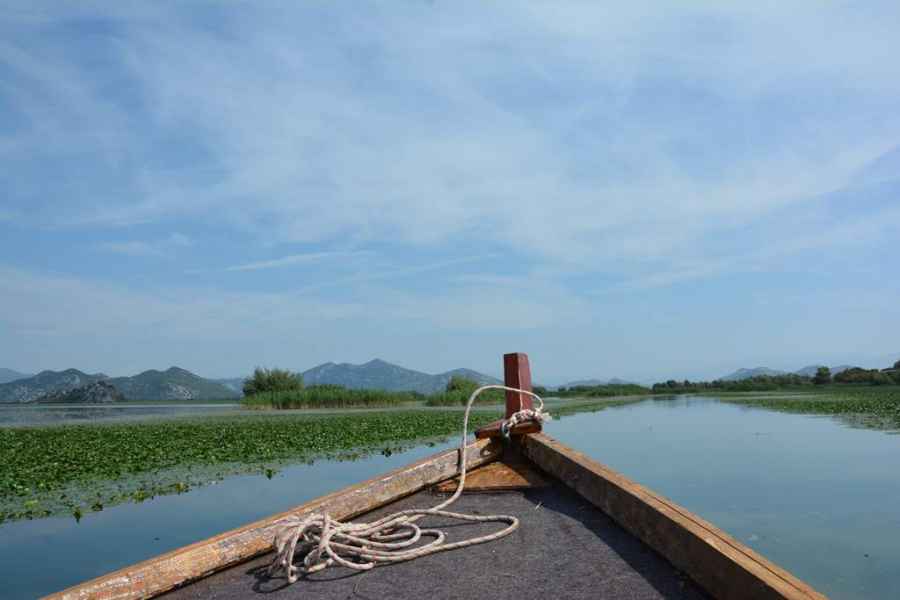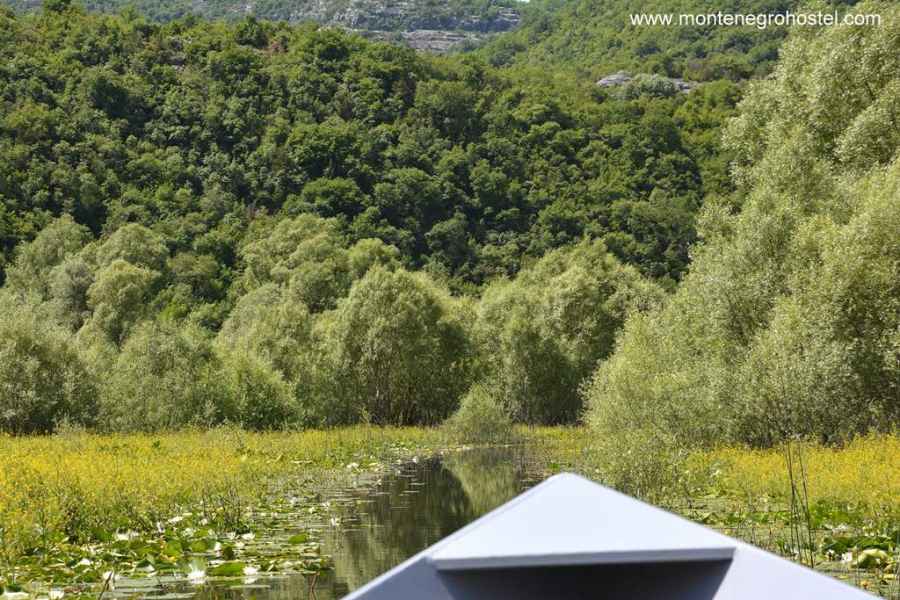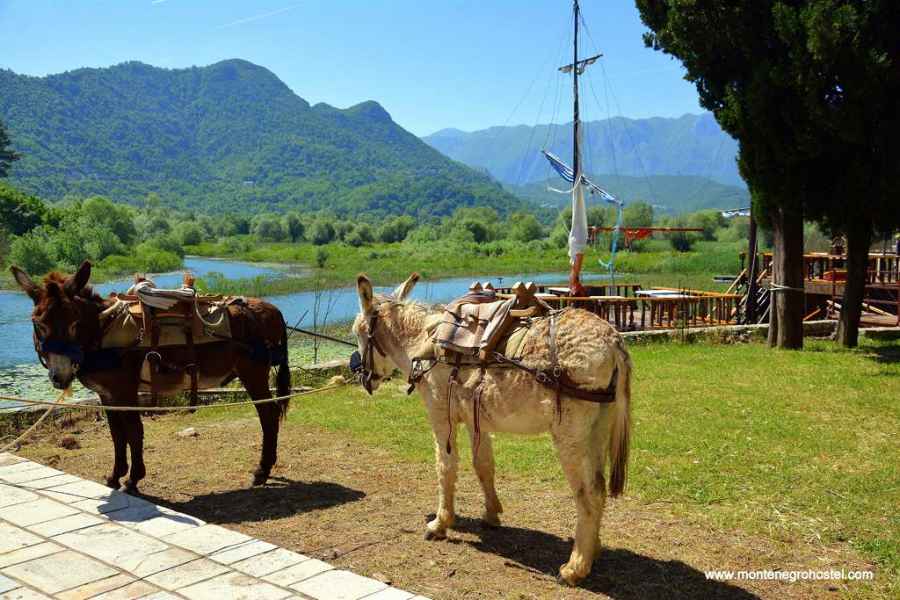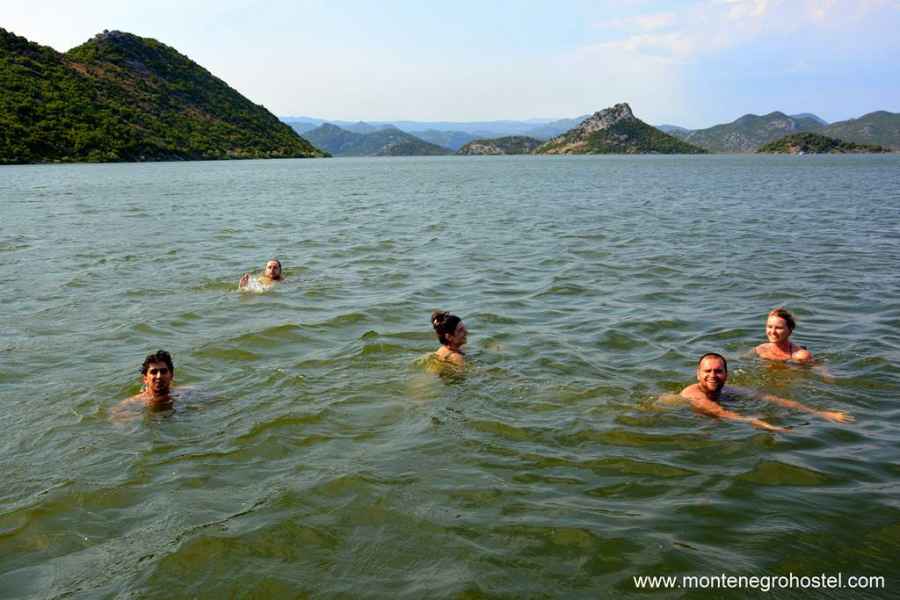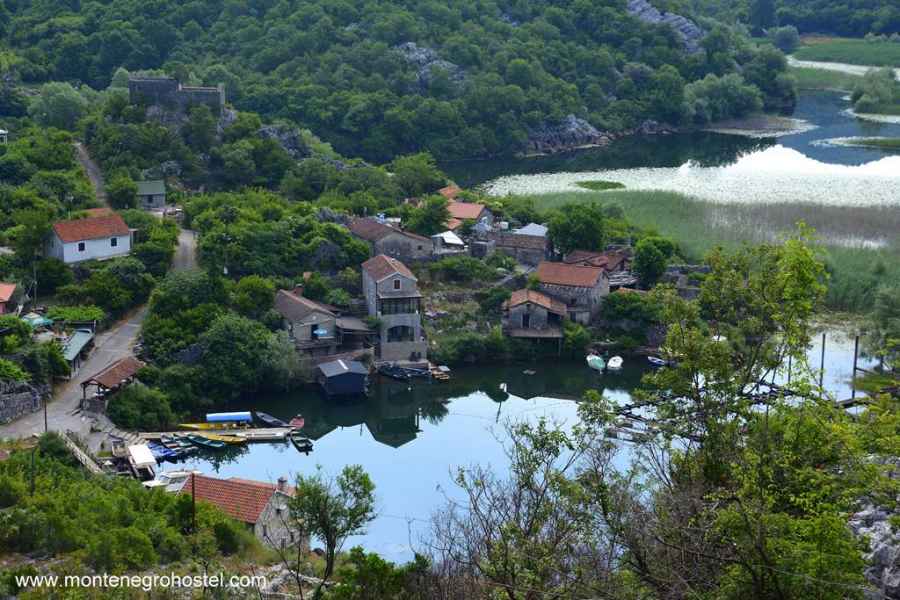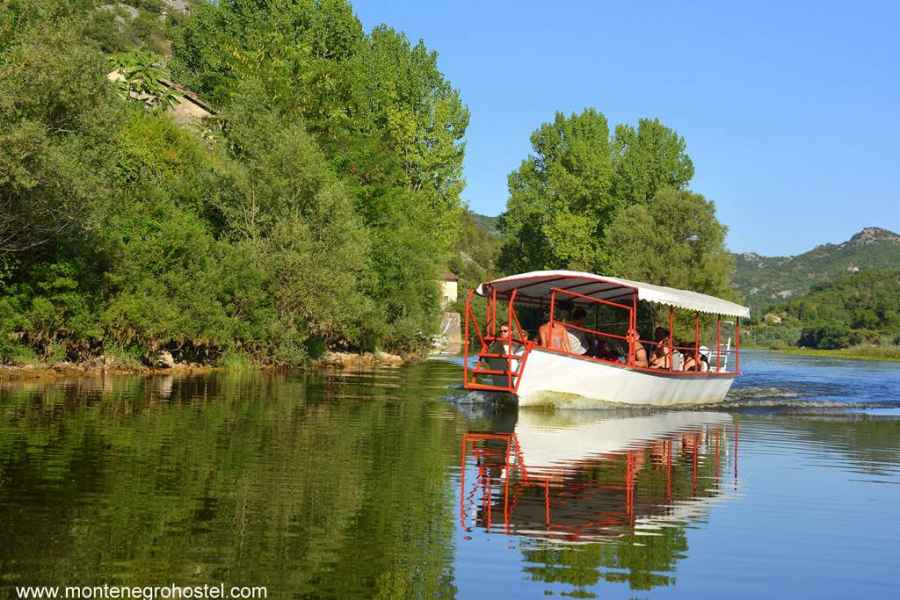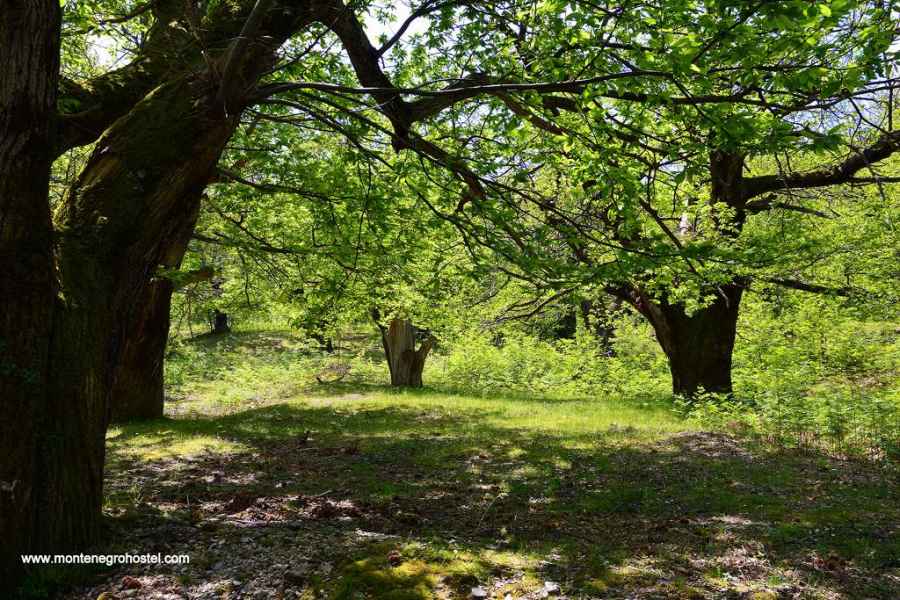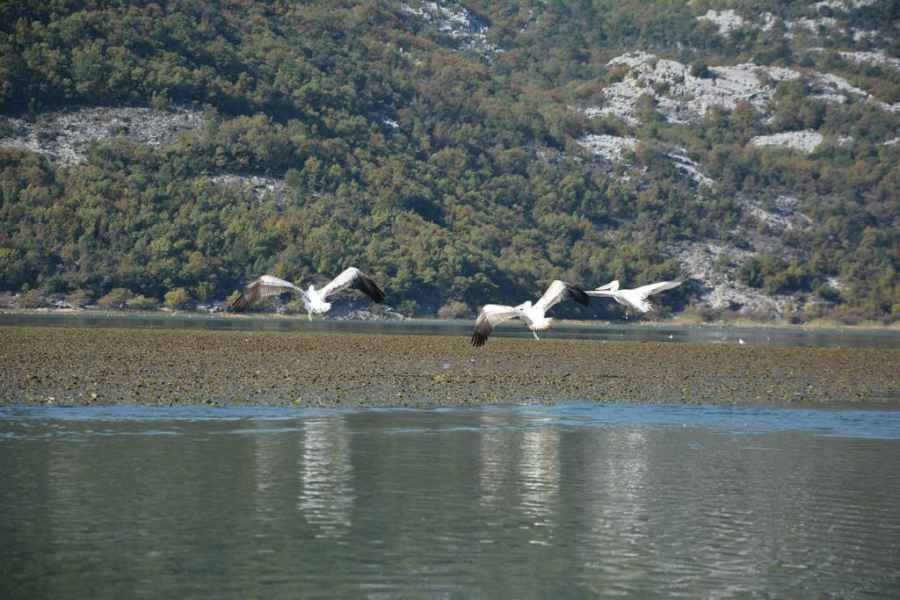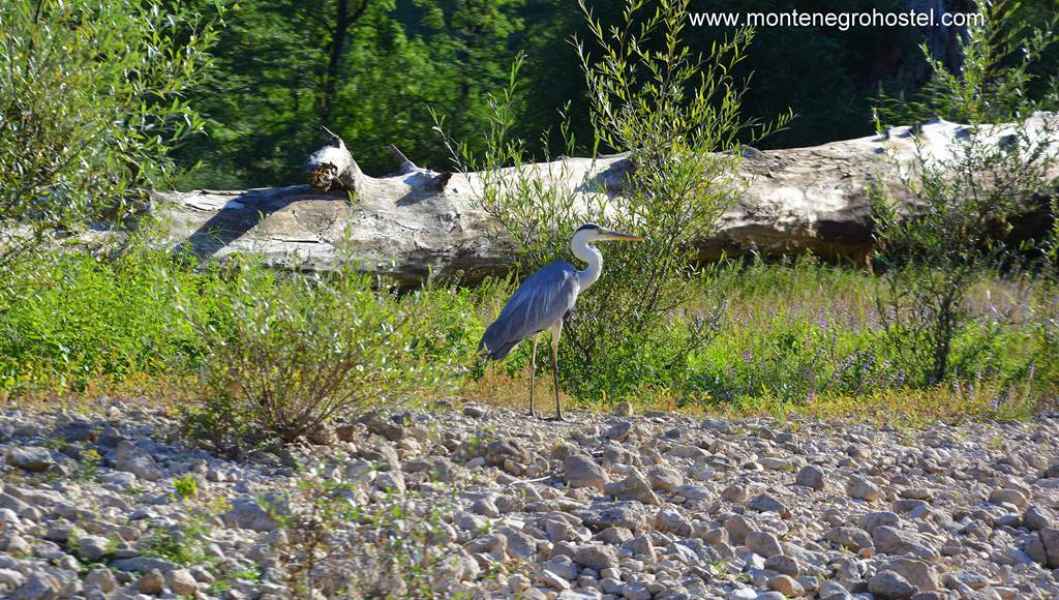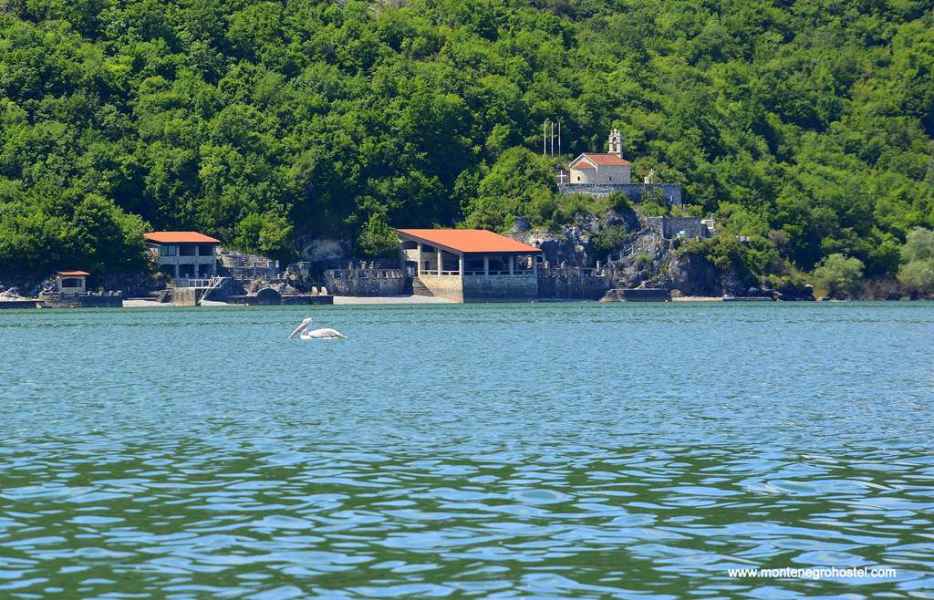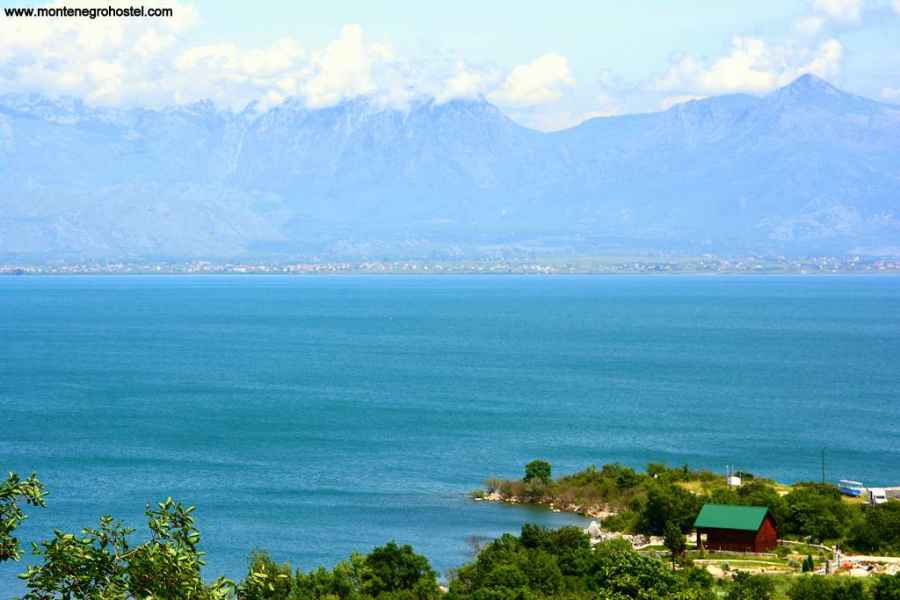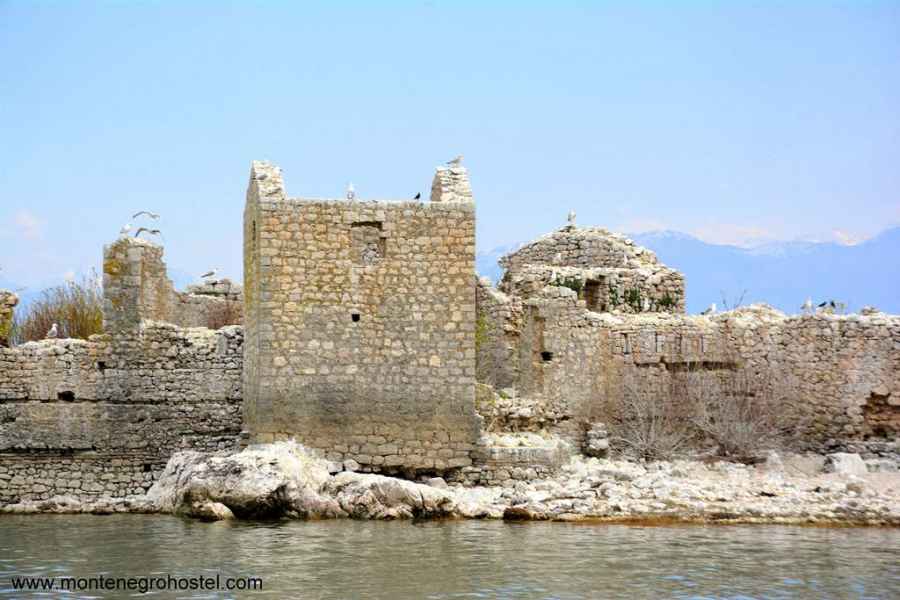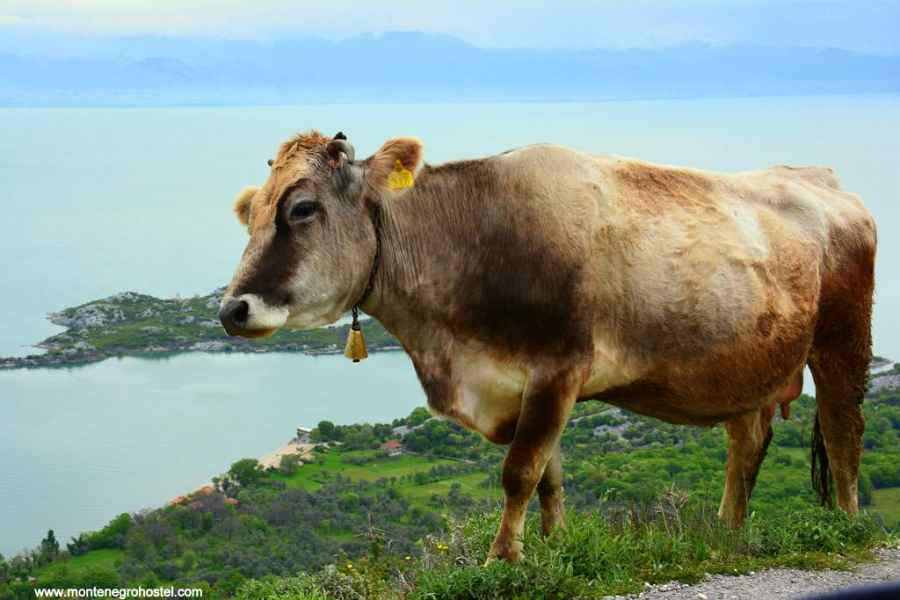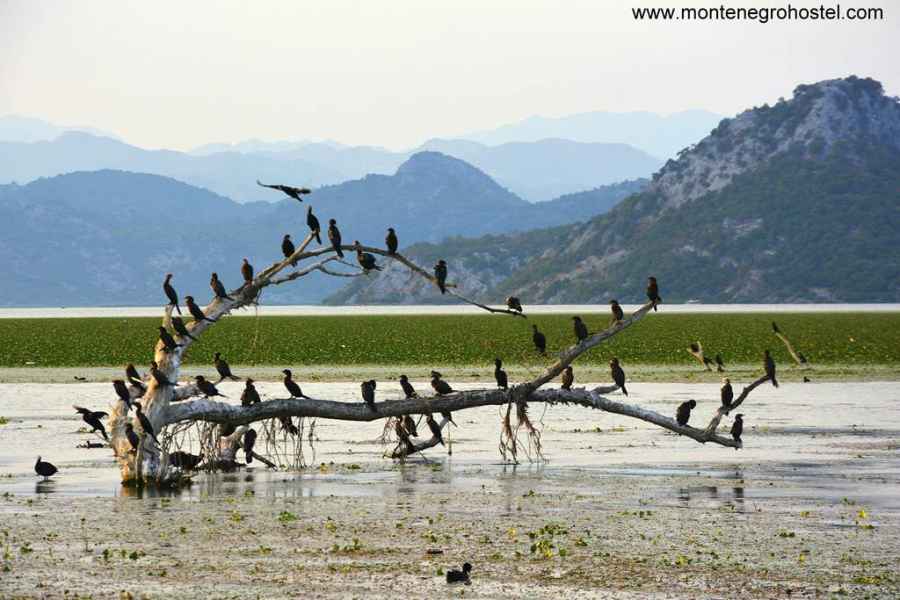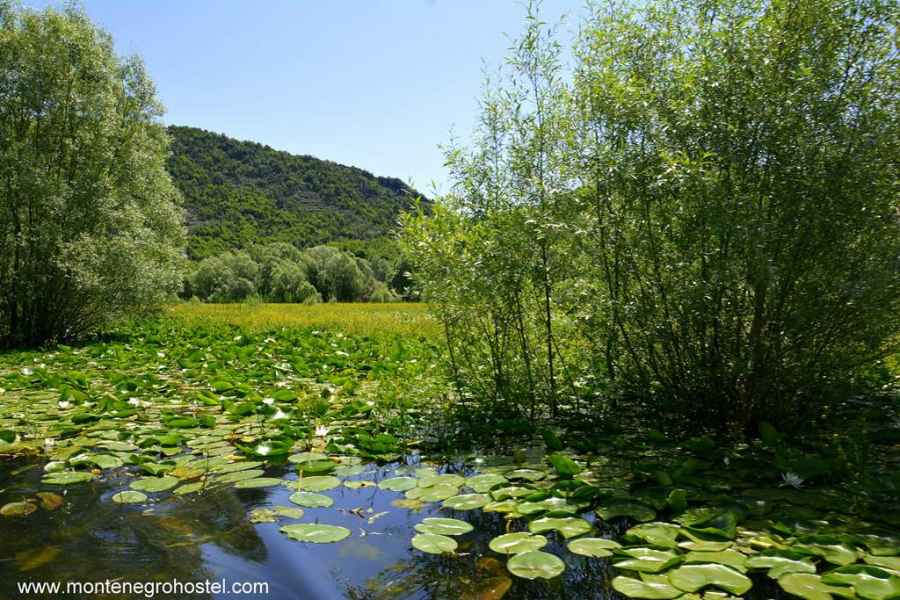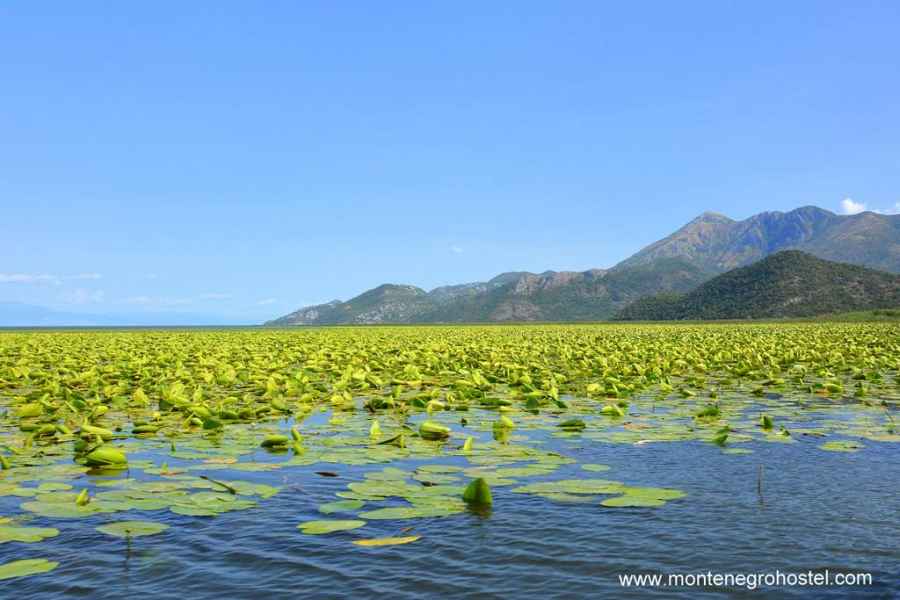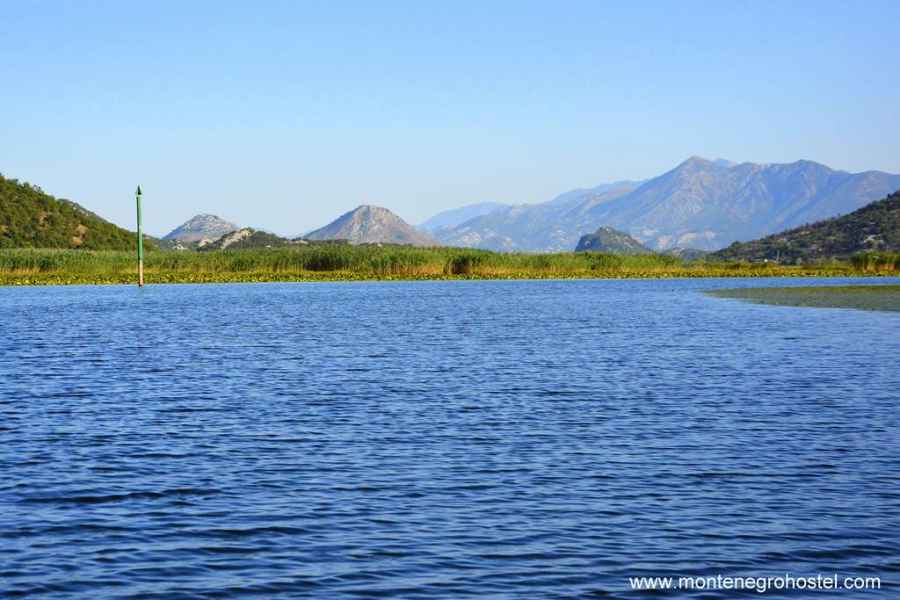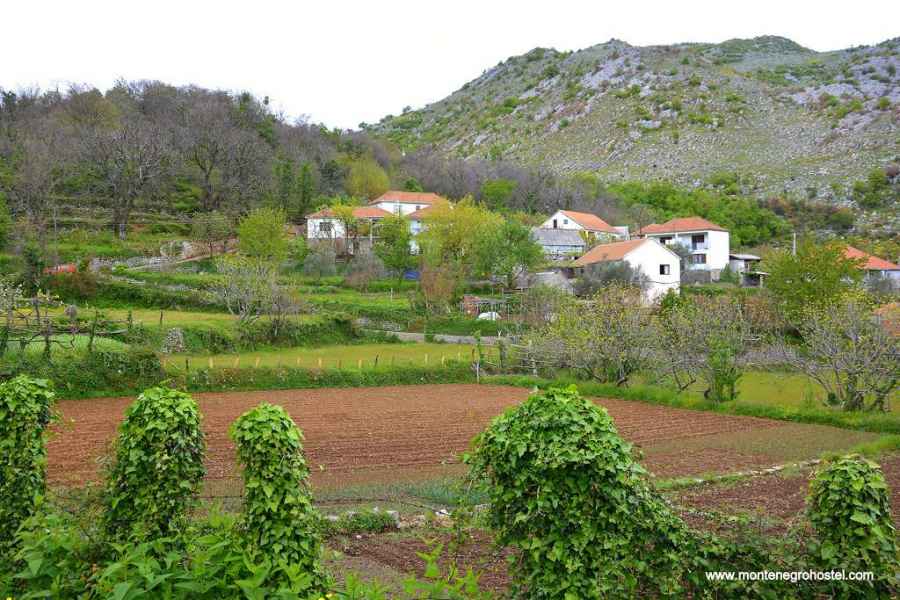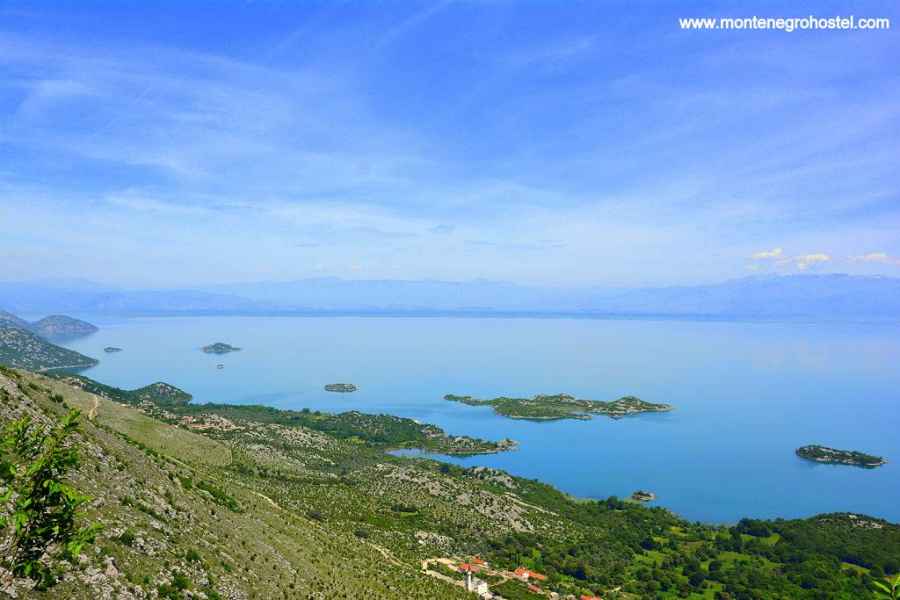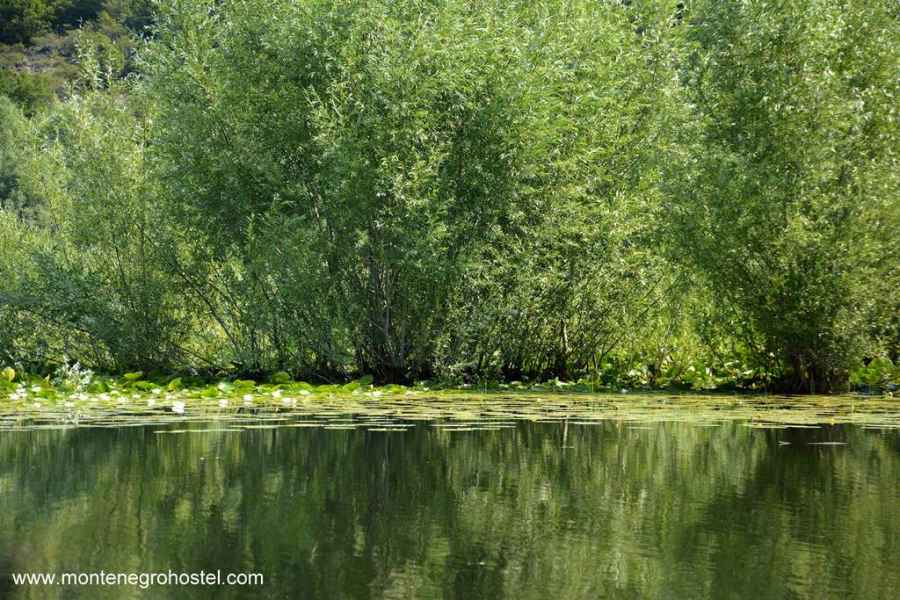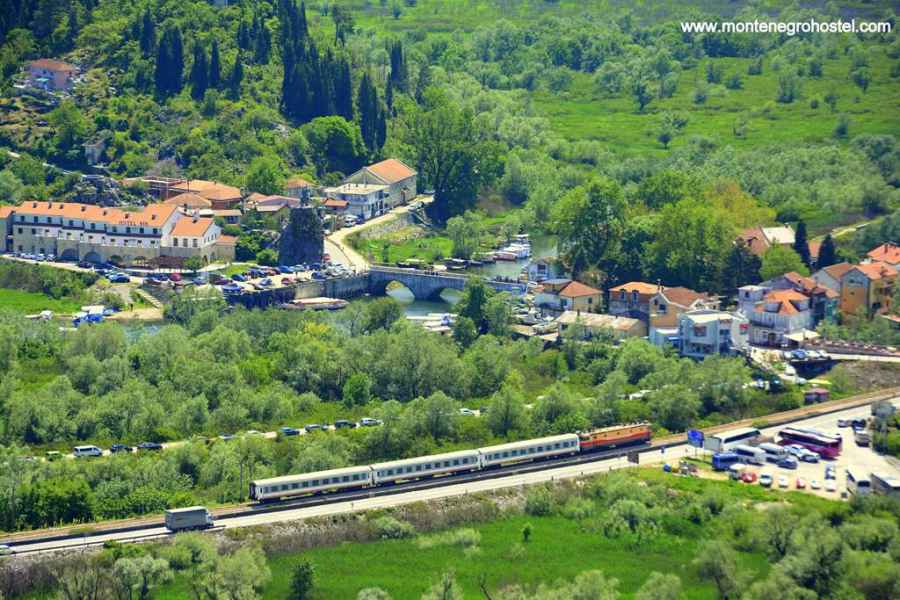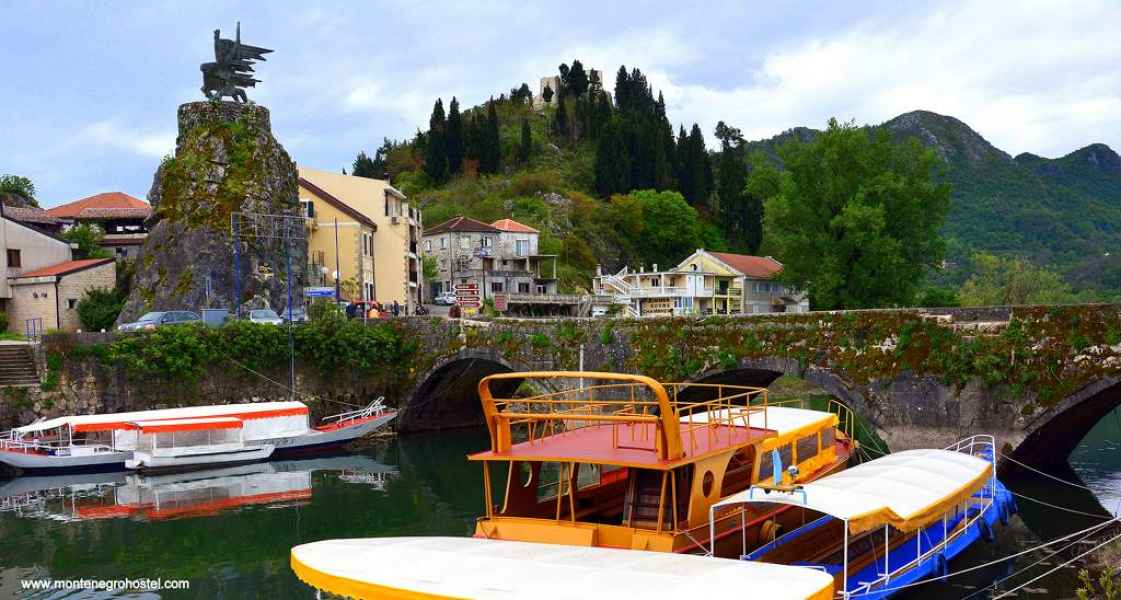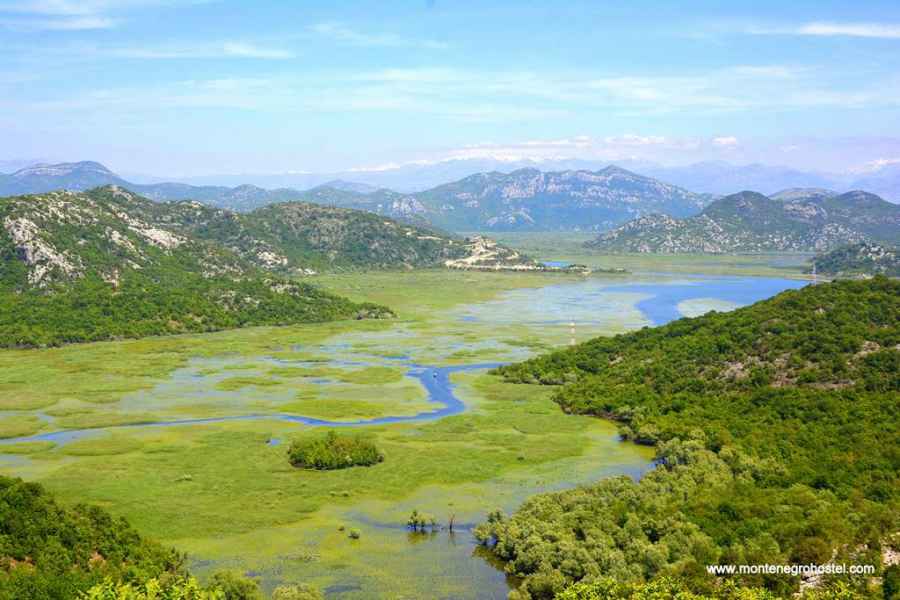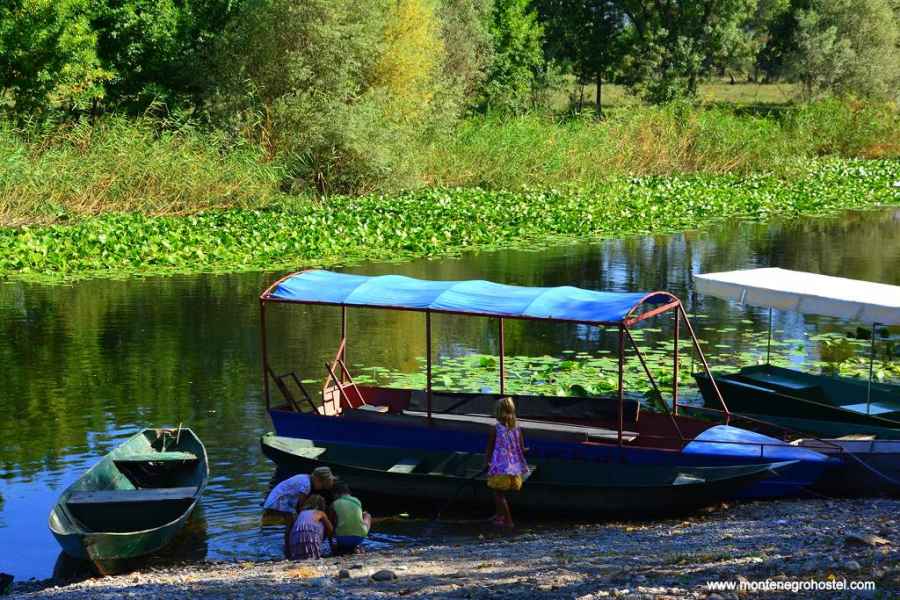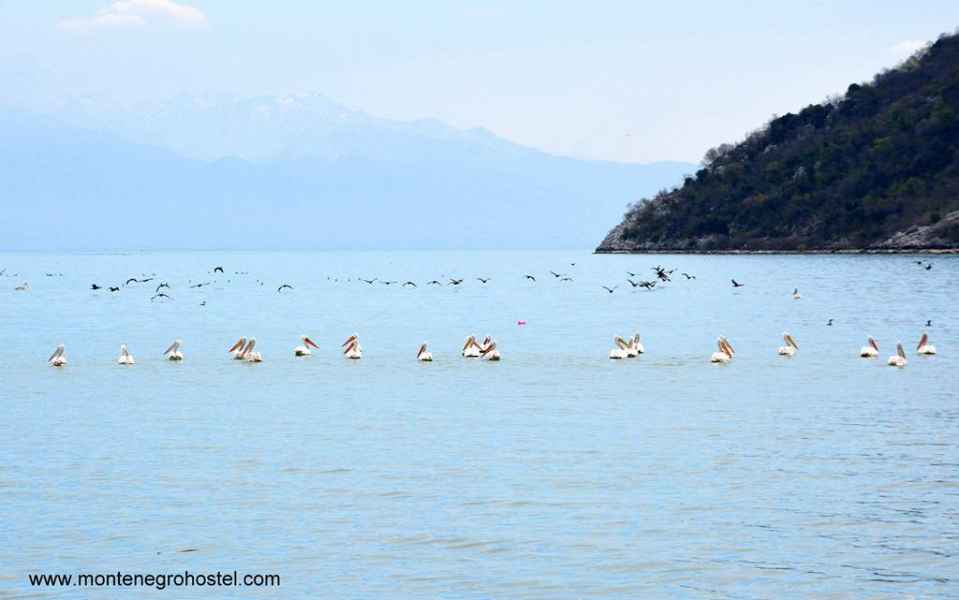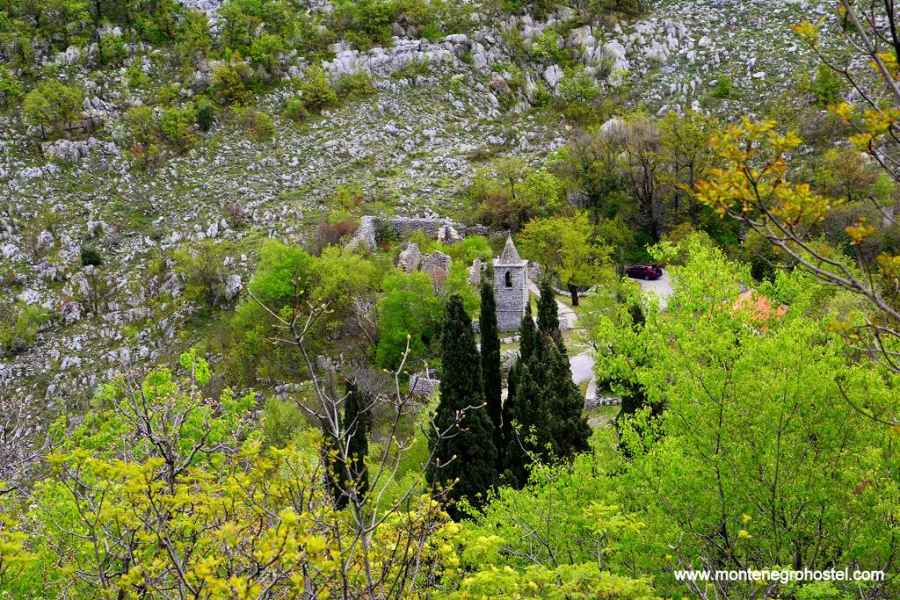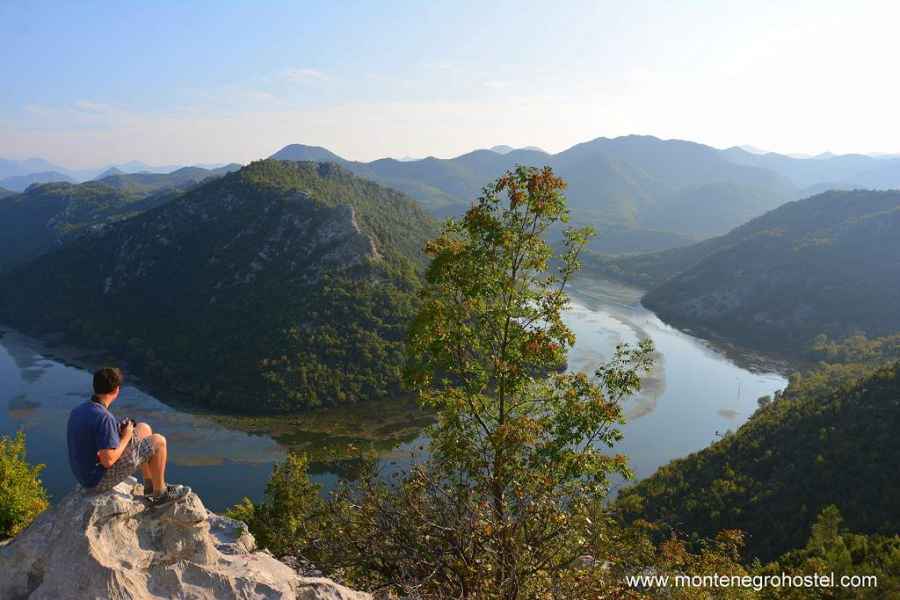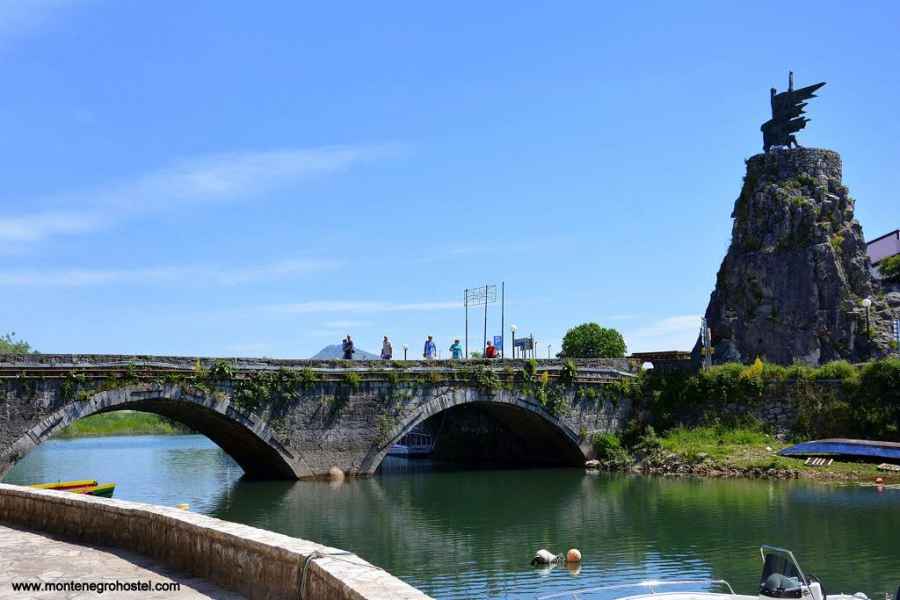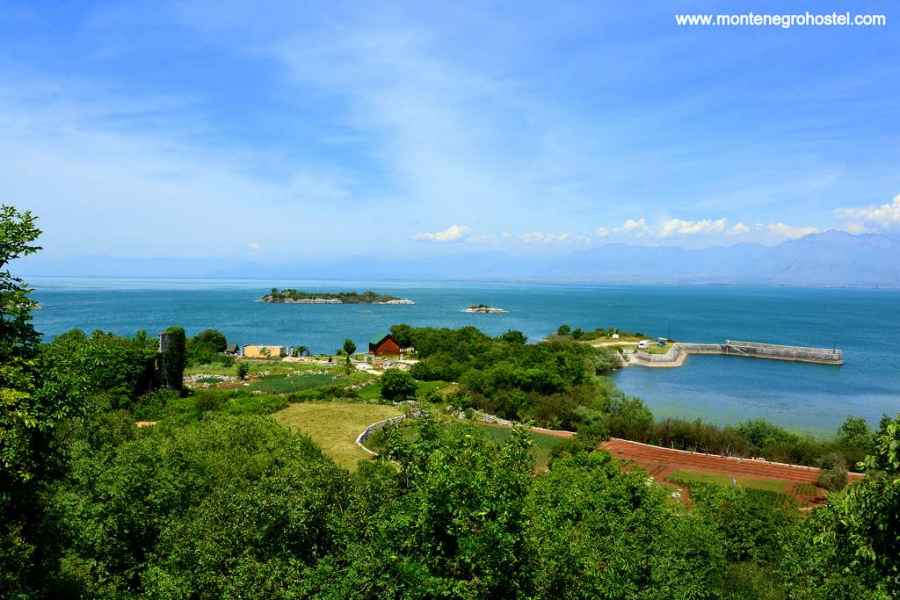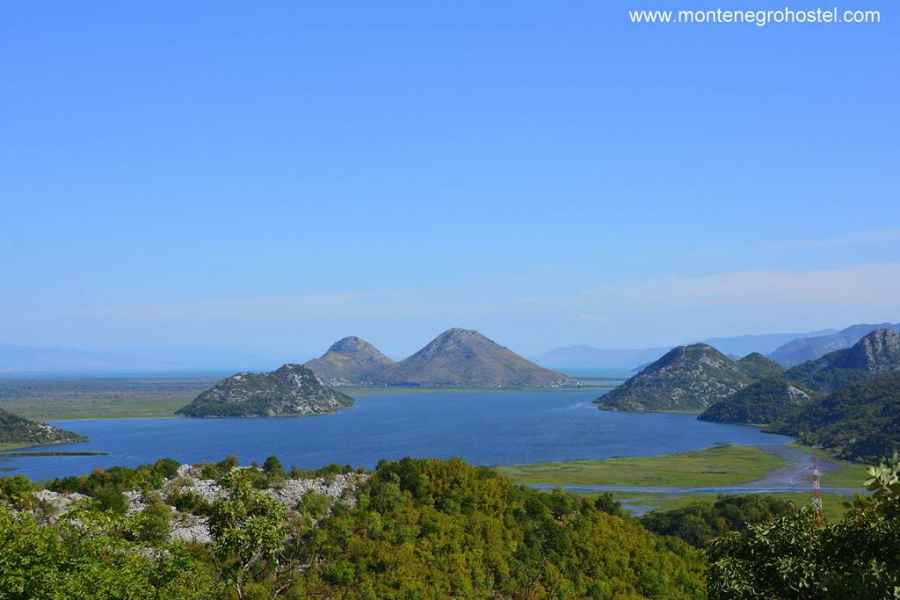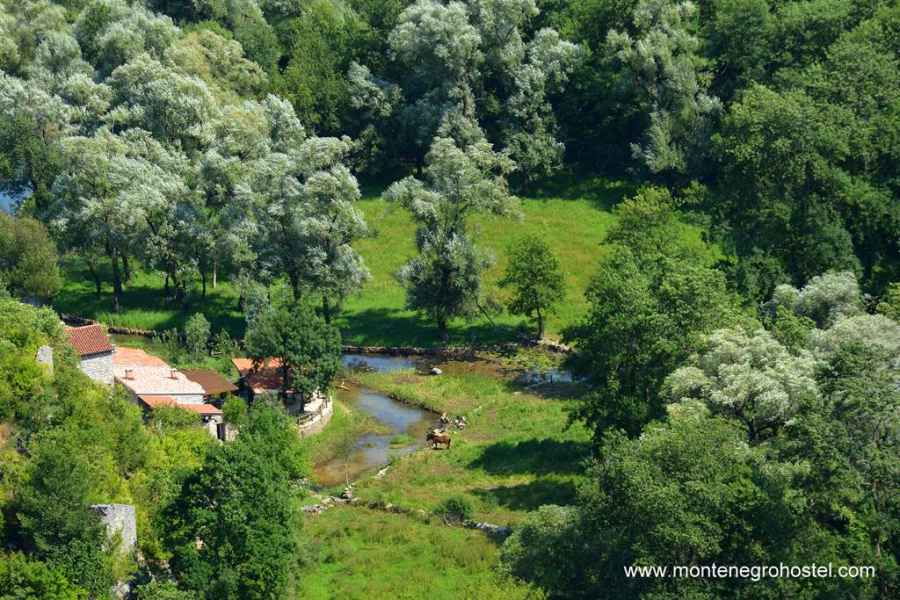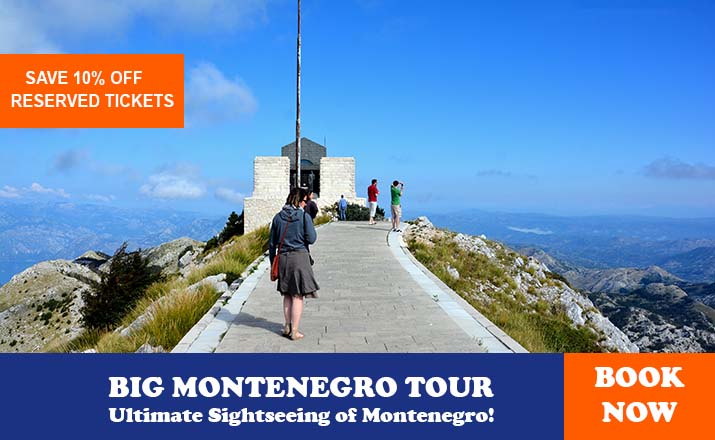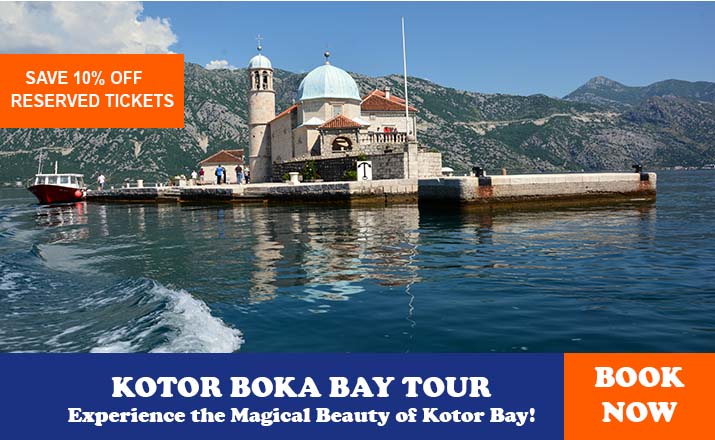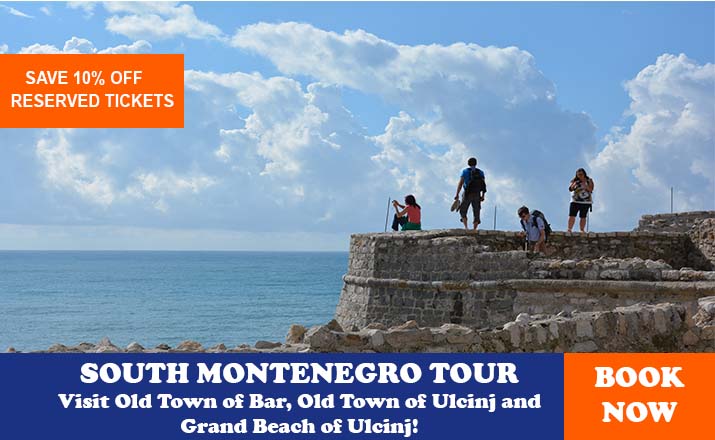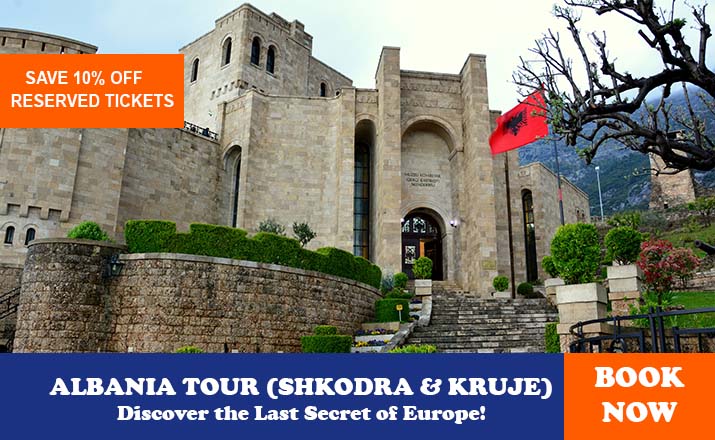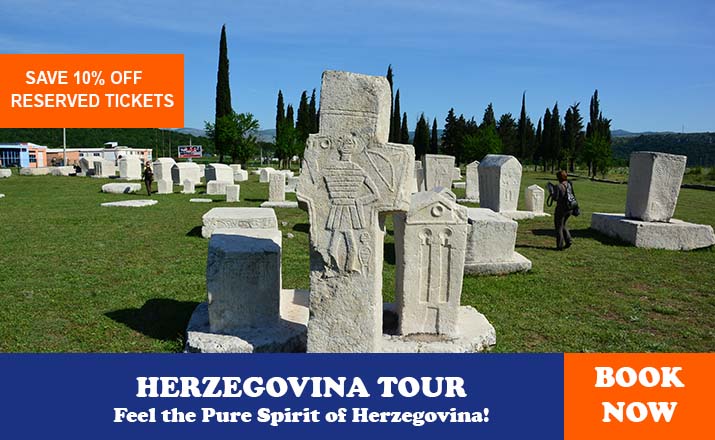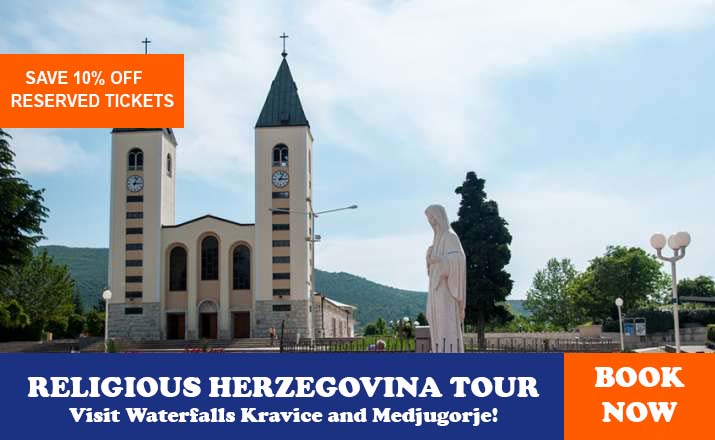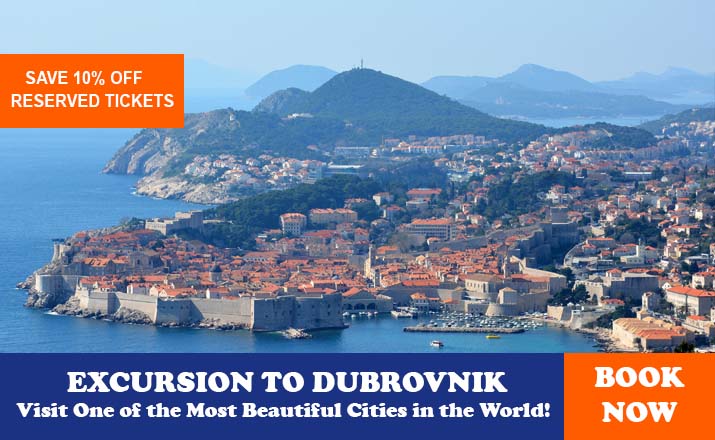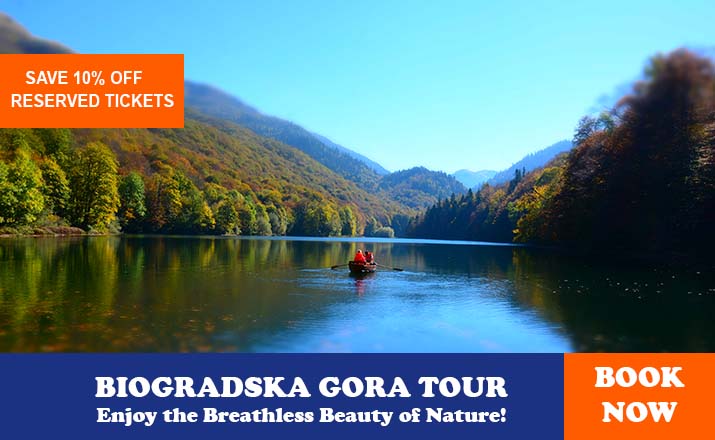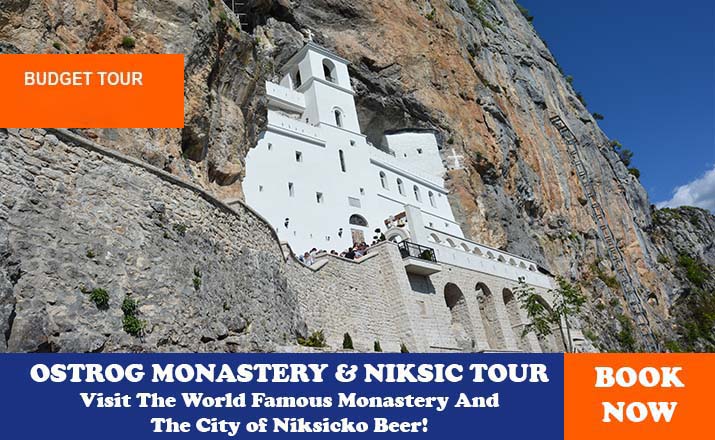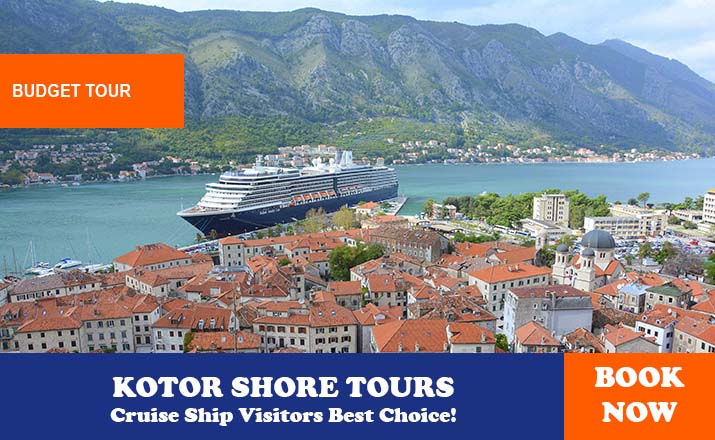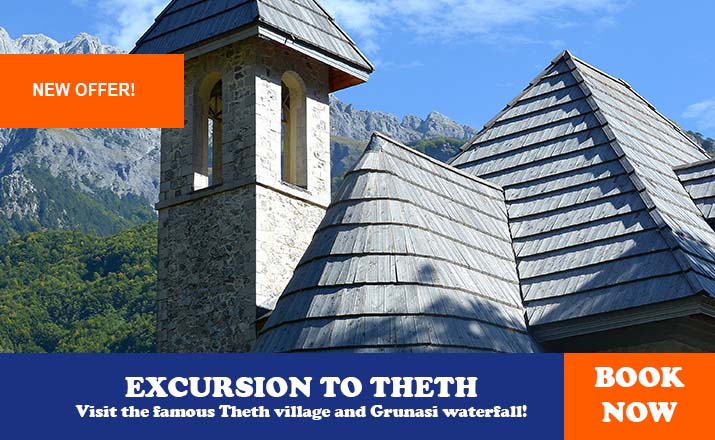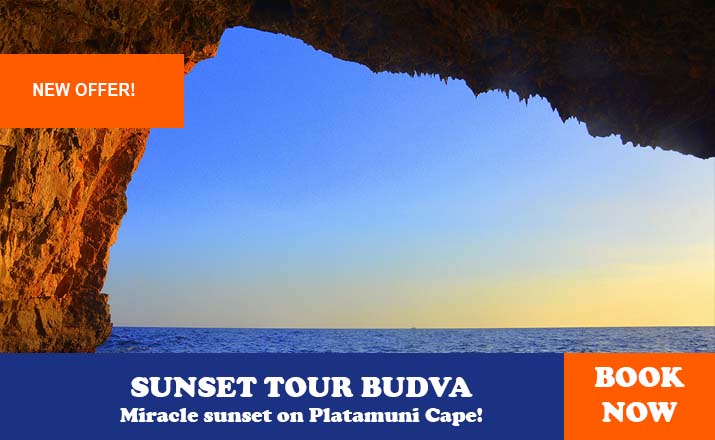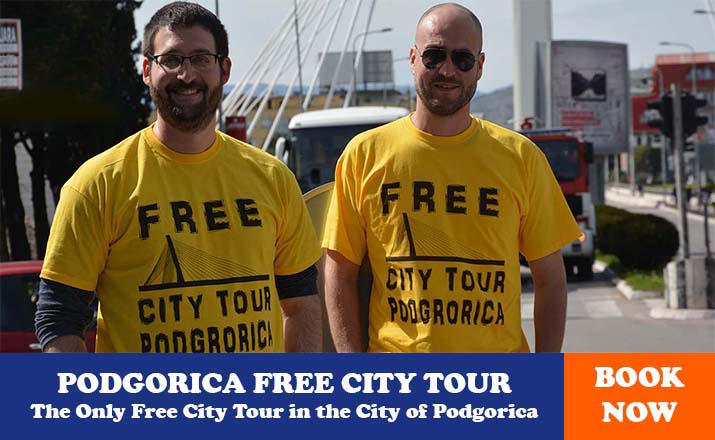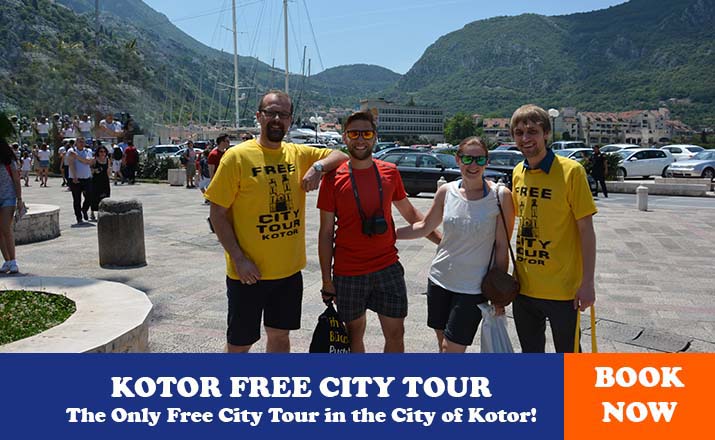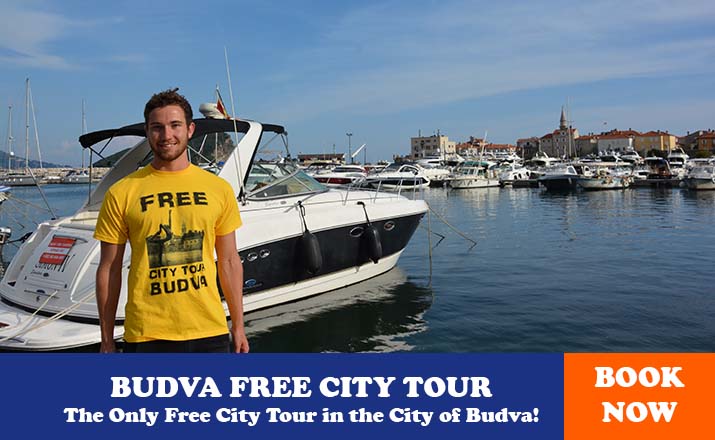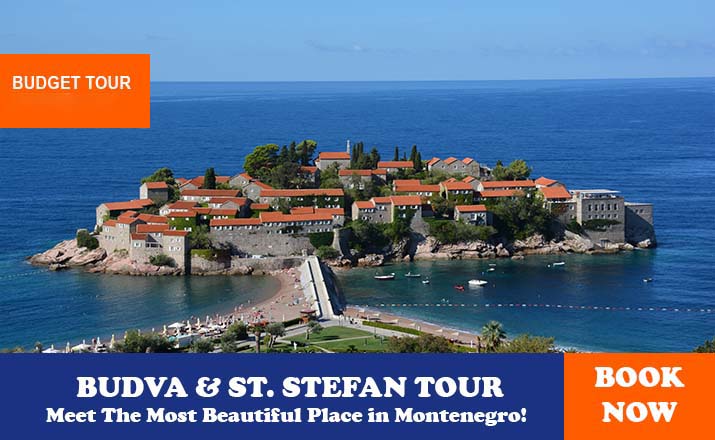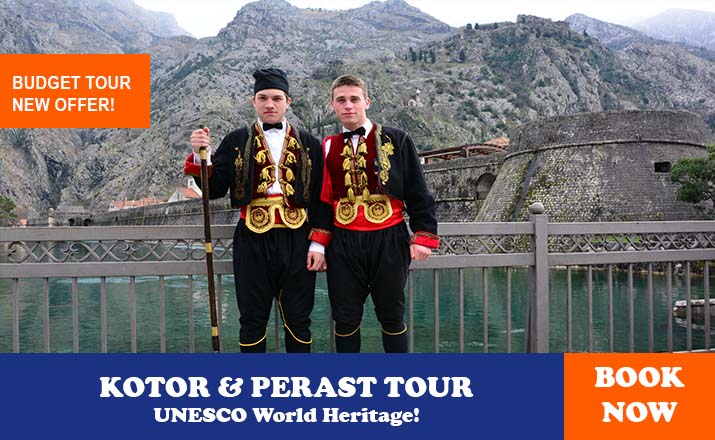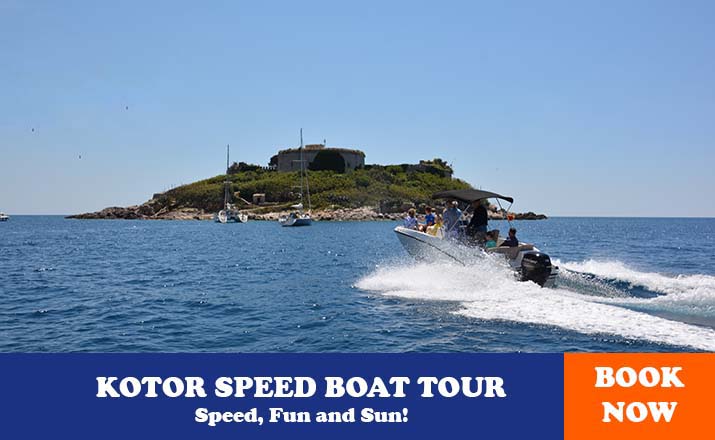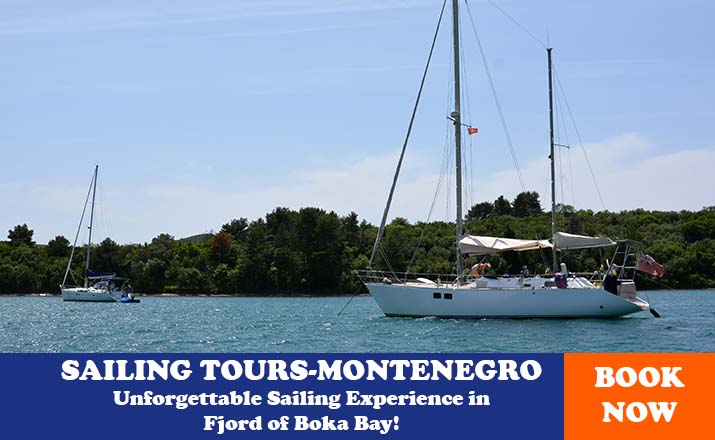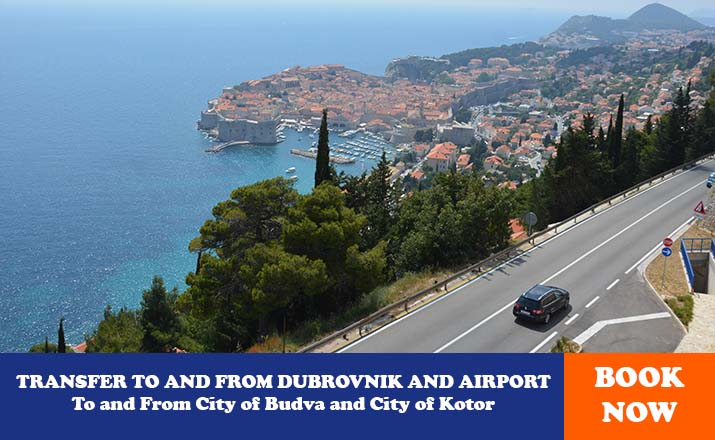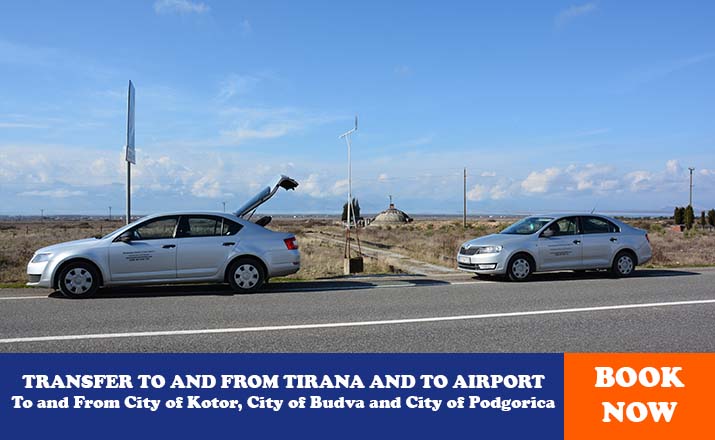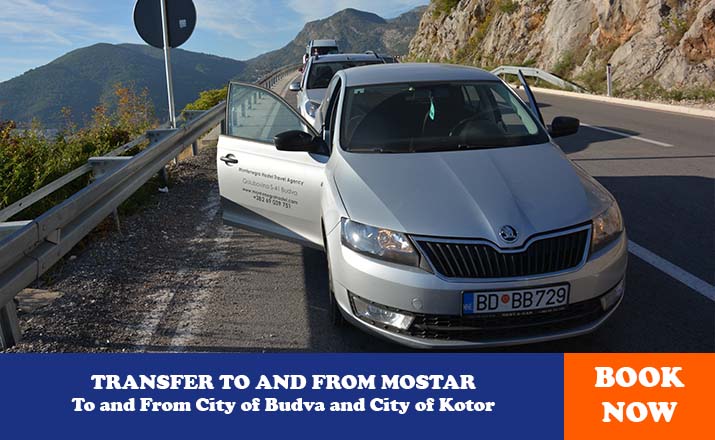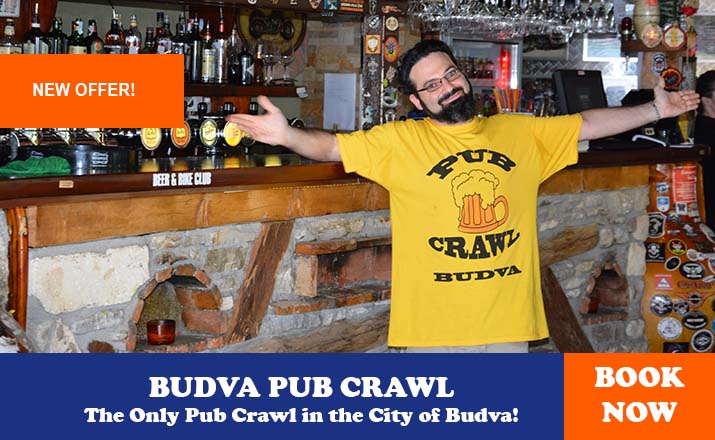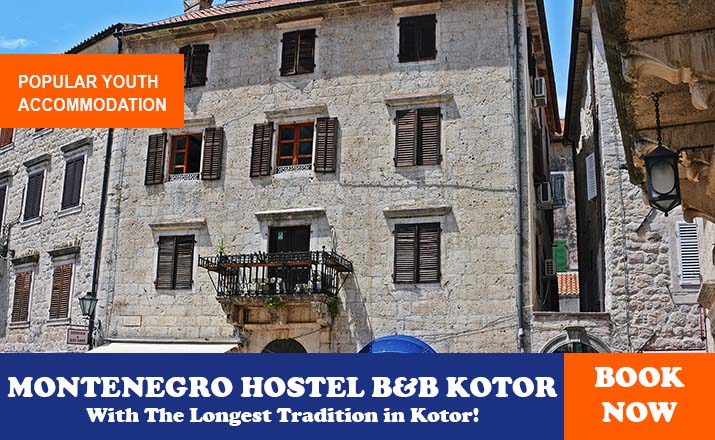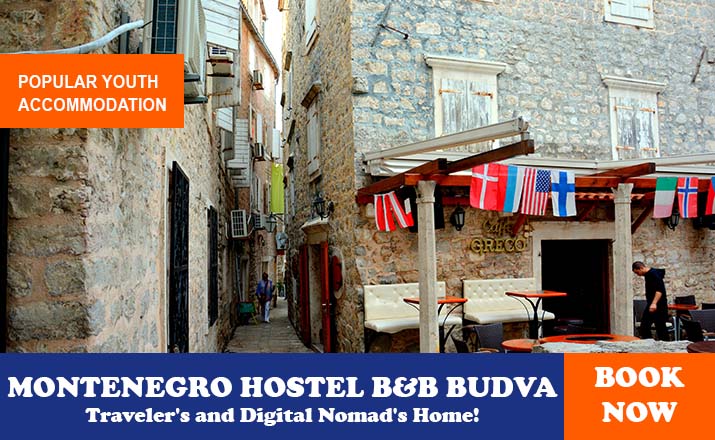ABOUT NATIONAL PARK SKADAR LAKE
NATIONAL PARK SKADAR LAKE
Lake Skadarsko (Skadrasko jezero) (often referred to as Lake Scutari) is the largest lake in the Balkans, some 40 km long and 14 km wide. It lies on the Zeta plain in the south of Montenegro, very close to the sea, which is divided by a strip of land roughly 15 km wide and dominated by Mt Rumija. From afar, the Lake is an imposing sight with high hills and rocky islands rising from its tranquil surface. The lake forms a natural border with Albania: two-thirds of its surface, including the whole of its north and west coast, is in Montenegro, while the other third, which includes the east and the south coast, is in Albania. Shkoder (Skadar in Serbian, Scutari in Italian), which is in Albania, is the only substantial city on its shores and gives the lake its name. The lake receives its water from the river Morača and underwater springs, but also has a constant outflow through the river Bojana to the Adriatic Sea. These conditions make its size very variable-from 530 square km during the snow-melting period in springtime, to just 370 square km in late summer and early autumn. In the dry season, many of its islands join with the mainland, vast areas are turned into shallow marshes, and some parts of it become separate lakes.
The whole lake is a crypto-depression, a natural phenomenon in which the lake’s surface stands above sea level while its depths are below it. The lake is generally only 5-8 m deep but has some 30 underwater springs (called locally oka “eyes”) which reach depths of 60 meters. The lake’s coast in its Montenegrin part is ragged with many small coves, a peninsula, and around 50 isles, locally called Gorica (“small hill”). On its shores, stony inlets interchange with small bays covered in thick reed, while its surface is covered in water lilies or such natural rarities as kasaronja, the floating water nut, which does contain an edible part, a rare delicacy you can try in some restaurants. On its shores, one can find many small flowers, wild pomegranate trees, laurels, etc. The waters of Skadarsko Lake are rich in fish, both the freshwater kind, of which most commonly are carp and bleak, and the sea fish, such as eels and striped mullets that swim upstream along the river Bojana. The abundance of nesting conditions attracts as many as 264 indigenous and migrating bird species. Amongst the,m the most numerous are cormorants, the grey herons are becoming a rare sight, while the most interesting are large Dalmatian Pelicans who nest here. Numerous flocks of ducks and geese spend their winters on the lake. Together with the rest of the Zeta plain and Podgorica, Skadarsko Lake has mercilessly warm summers when the lake’s water warms to 28⁰C. In contrast, during winter, its shallower waters freeze. Due to all these remarkable features, Lake Skadarsko is protected as a National Park.
Lake Skadarsko is equally interesting for its historical heritage from various epochs. Around its spread, small towns such as Rijeka Crnojevića or Virpazar and many small fishing villages such as Vranjina, Karuč, or Dodoši have retained their traditional looks with small stone houses tucked in together. In them, one can enjoy the seclusion and the slow pace of a fisherman’s life. Karuč and Dodoši are best reached via road from Podgorica to Rijeka Crnojevića. The route through the Krajina region on the Lake’s west coast leads through several scenic villages and past the medieval monasteries.
The main route through this region is from Podgorica to Virpazar, which can be traversed by car or train. Both the highway and the railroad pass across the lake through a dike that separates the lake into two parts, the smaller part being to the north of the dike. The dike first reaches the island of Vranjina, in fact, the largest of all Montenegrin islands, including those on the seaside. Close to the road lies a large finishing village of the same name with a preserved look of the old days, nestled around a small bay and now almost completely closed off by the dike. The seat of the National Park authorities is located here, with its small visitor center, where you can learn more about the park. Next to Vranjina is the small isle of Lesendro, dominated by a fort of the same name. As the control over the island also meant the control of the trade to and from Montenegro, during the early 19th century, the fort witnessed long-standing disputes between the Turks and the Montenegrins, on all occasions were resolved through fighting. As it is impossible to park near it is best to leave your car near the restaurant on the western tip of Vranjina and walk along the highway to the fort. The sides of the dike are lined with fishermen enjoying the abundance of the lake’s fish. The best way to enjoy Skadarsko Lake is by tourist boats. Most of them start from Virpazar, some from Plavnica, a complex on the north shore, while less often boats sail out from the local villages. The territory on Lake Skadar is divided between three municipalities: Cetinje, Bar, and Podgorica.
This lake is located in the epicenter. It lies between three cities on the border of the municipality of Podgorica, Bar, Cetinje, and ancient trade centers Rijeka Crnojevića and Virpazar. Podgorica airport is only 15km away from the lake and at the same distance from the sea, through the Sozina tunnel. Besides the ancient roads, which connected parts of former Montenegro, there is the main traffic road and railway from Podgorica to Bar running across the lake. Vranjina and Virpazar are the main stations on that road. From Virpazar, the road goes through Crmnica, to Krajina, towards the south, most of the lake with its many picturesque villages built between the stone and water. From here through the mountains, the road leads to Ulcinj and Bar. If you want to go to the northern part of the lake, you can use the road from Podgorica to Cetinje. Besides the fact that modern traffic infrastructure outflanks that part of Skadarsko Lake, Rijeka Crnojevića, and nearby villages are the key tourist spots. Rijeka is connected with Virpazar with the old curvy road with wonderful lookouts. The whole lake is connected by roads. We will list the most important tourist places on the lake in its municipalities of Bar, Cetinje, and Podgorica.
The municipality of Cetinje has 4 tourist highlights on Skadar Lake: Žabljak Crnojevića, Obod, Rijeka Crnojevića, and Karuč.
ŽABLJAK CRNOJEVIĆA
Once a capital and today a settlement with the same name dates from the first kings of the Crnojevića dynasty, who occupied the lake at the end of the 14th and beginning of the 15th century after the Balšića dynasty. Crnojevići has built a fortress town, Žabljak, probably on the foundation of some Illyrian fortress. It dominates the entrance to Malo Blato, Zeta, and Vranjina. The town had a castle, a church, and dwelling buildings. The town was ruled by the Turks from 1478 for the next 400 years. The Turks tore down the church and built a mosque on the church’s foundations. The castle met a similar fate; the Turks replaced it with barracks for their soldier.
OBOD
When the Turks had conquered Albania, Ivan Crnijević transferred the capital from Žabljak to Obod–a fortress that he had built previously on the hill above the river, which would be named by the dynasty, after Crnojević’s rule. However, Obod was just a temporary station in moving the capital from the Zetska metropolitan to Cetinje. After that, Obod became a fortress center and a seat of old Montenegro. From once-powerful Obod, today we have just ruins. Inside the wall, there are ruins of the cellar where once famous Obod’s printing house was located.
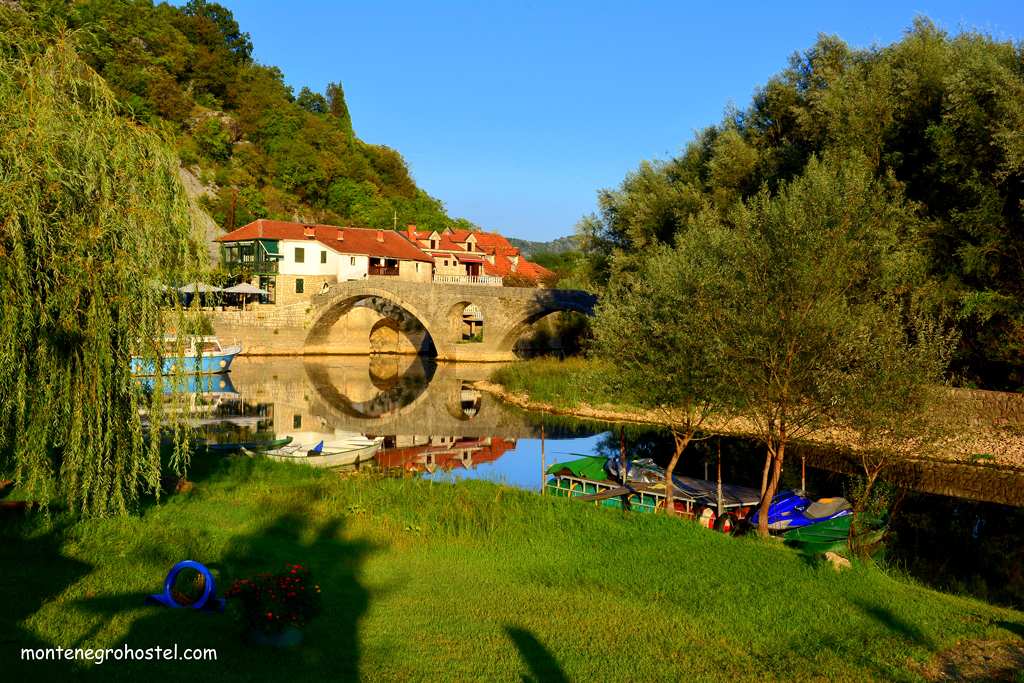
RIJEKA CRNOJEVIĆA
This is a picturesque place and a port on the banks of the Rijeka Crnojevića (Crnojevica River). It was founded in the second half of the 15th century when the ruler Ivan Crnojevic moved his capital town from Žabljak to Obod Hill and formed Riječki grad (River's Town). Rijeka Crnojevića is a small place where the borders of history and legends are intertwined. Stone houses and streets date from Prince Danilo’s time. Numerous rulers from the Petrović dynasty had their summerhouses here, including the prince and then King Nikola’s summerhouse (Ljeskovac castle). The first weapon factory was founded here, where the guns taken from Turkish soldiers were repaired. Also, the first pharmacy in Montenegro was opened here, as well as the pearl factory that produced pearls from the fish scale.
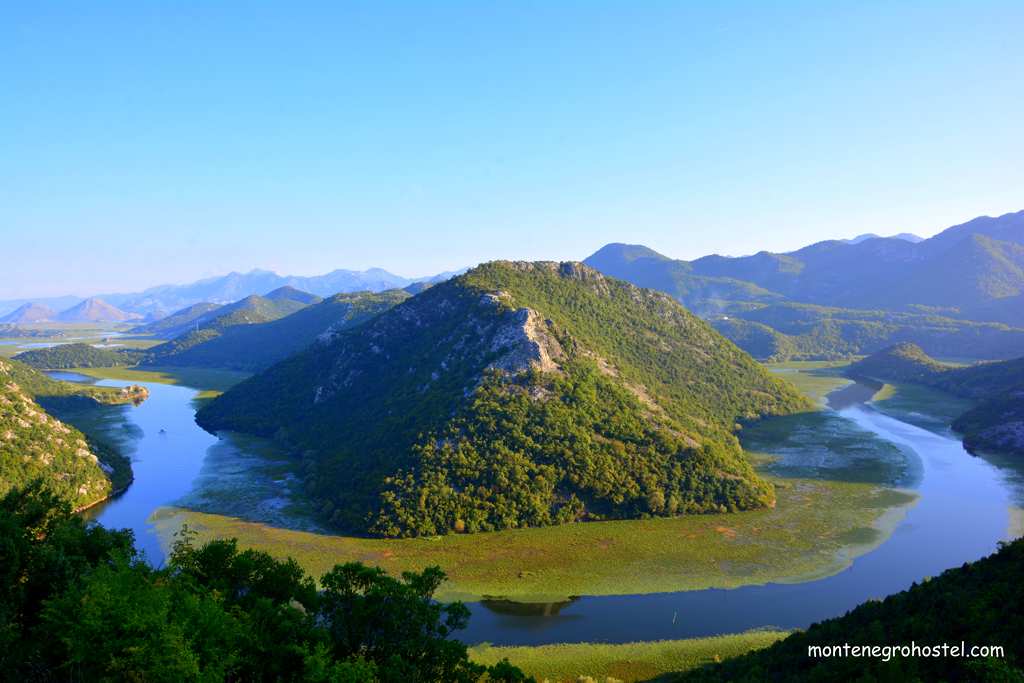
KARUČ
Within the ruins of the winter home of Sveti Petar Cetinjski, where he was staying during cold winters, beyond two underwater springs – Volač and Karuč, lies a typical fisherman's village. Because of the attractive location and fantastic landscape, Karuč is a very important tourist destination. You can reach it from the mainland or the water.
The municipality of Bar has 4 tourist highlights on Skadar Lake: Virpazar, Grmožur, Beška Island, and Godinje.
VIRPAZAR
This town was founded in the 19th century and named Whirl (Vir), where the locals came by boat to the marketplace. It was the place where weddings were arranged, sold traditional costumes, craftwork products, fishermen's equipment, etc. From the nearby hill village, people came to the marketplace and sold their goods, and bought fish, meat, wine, and other ingredients. In time, this place became a significant agricultural, market, and transportation center. This place has a railway connection with the cities of Bar and Podgorica, but you can also come here by boat. Around 300 people live in Virpazar today. The town is on the delta of the rivers Crmnica and Orahovštica and has three bridges. Above this town, there is the medieval fortress Besac. Virpazar has a small port for boat cruising tours on Skadarsko Lake and a few good restaurants with traditional cuisine like smoked carp, goat cheese, olives, and dried figs.
GRMOŽUR
Grmožur (ex Montenegrin ''Alcatraz’') today is home to the wall lizards, snakes, and birds. During the rule of the last king, Nikola Petrović, this was a prison. This small island in Godinjski Bay is far away from the coast, so it cannot be reached without a boat. This was the place for the worst prisoners and political opponents, but only for people who did not know how to swim, and for whom it was impossible to escape. Before it became a Montenegrin island, Grmožur was a Turk's fort for defense from the attacks on their main base in Skadar.
BEŠKA ISLAND
One of the biggest islands on Skadar Lake is Beška. There are two churches founded by the Baltica Dynasty located on a small hill beside the water. In 1386, Đurađ Balšić built a bigger church devoted to Saint George. Not so far from his husband’s grave church, Jelena Balšić built her church in 1439 on the foundations of an older church. Her wish for that church was to become a significant cultural center, where a rich writing tradition would be continued. Nowadays, there is a female Orthodox monastery where the nuns live.
GODINJE
One of the oldest villages on the Lake is Godinje. It is settled in Crmnica, on the road from Virpazar to Murići, the place where you can find houses that are older than 600 years. This village, where only a few families live now, is characterized by its architecture: stone houses, built side by side, with small windows, big arches, terraces, and wine cellars with secret corridors. Remains of the mills and four stone threshing floors are witnesses to the once-rich economic and social life in Godinje. Even from the Illyrian times, there are some documents mentioning the tradition of grape-growing.
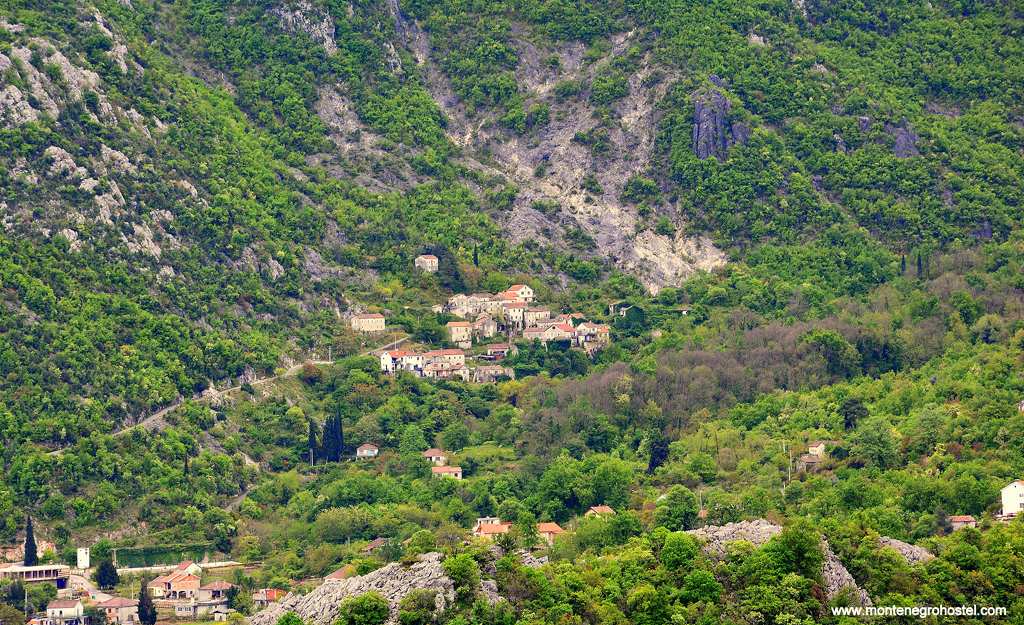
The municipality of Podgorica has 3 tourist highlights on Skadar Lake: Vranjina, Plavnica, and Lesendro.
VRANJINA
The old fisherman settlement of Vranjina is situated under the hill of the same name on the biggest island. Near the village is Saint Nicola’s monastery, built in the 13th century, where Zetska’s episcopal seat was located before being moved to Cetinje. It was devastated by the Turks, but rebuilt by King Nikola. Geographically and architecturally, this place is very attractive to tourists.
PLAVNICA
Plavnica was the natural connection from Podgorica to the Montenegrin seaside, much earlier than the proper road was made. To this strategic place, you could come by road or by railway. From this point, you could go to Rijeka Crnojevica or Virpazar by ship, and to the Adriatic Sea across the Bojana River. The time of the steam locomotive, which drove travelers from Podgorica’s Clock Tower to Plavnica by the narrow railroad, is still alive in people’s memories. Today, Plavnica is well known for its attractive tourist complex that has become a very important picnic and recreation place. It is a combination of wonderful nature and luxury with two restaurants, a few exclusive apartments, an open swimming pool, and a summer bar. From this lake’s marina, you can enjoy organized daily or night ship cruising.
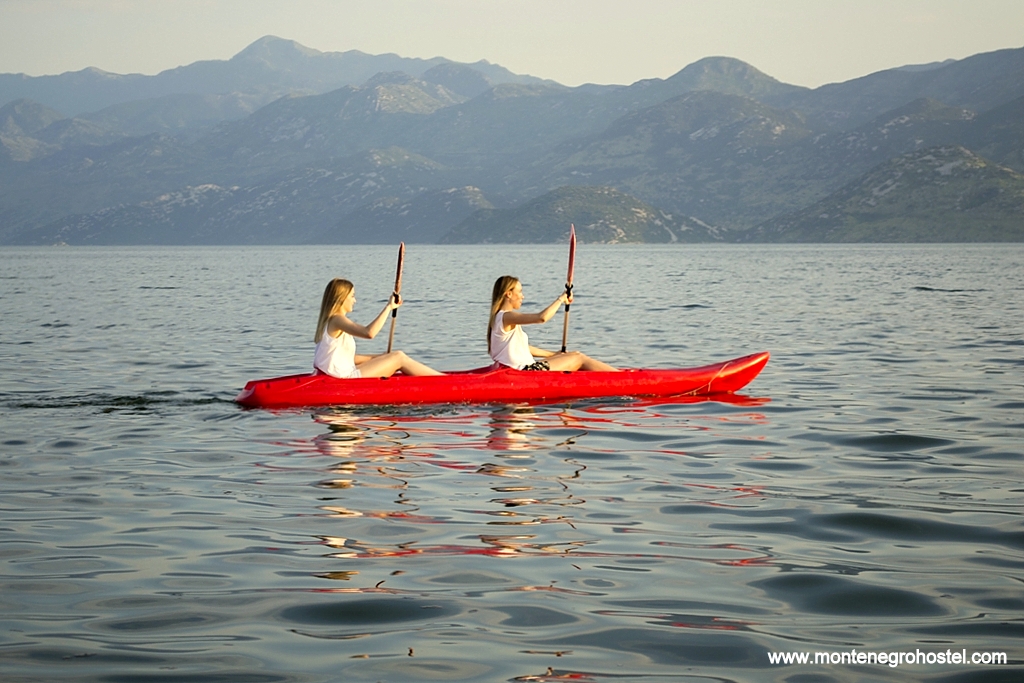
LESENDRO
Lesendro is a small rocky island between Tanki rt and Vranjina and has an interesting history. During the time of bishop Petar II Petrović Njegoš, Montenegrins built a fortress on this island to serve as a type of gate for the part of the lake from where Montenegrins defended their territory from the Turks. However, the Turks conquered this island during the same year, as well as Vranjina and Grmožur. Bishop tried to regain these significant fortifications, especially Lesendro, but without success. That is why, according to legend, he was very touched by his military failure, so today if you want to compare how big someone’s sorrow is, you will say – "like a Bishop’s sorrow for Lesendro".
CULTURE
Diverse and rich cultural-historical heritage, archeological sites, fortresses, medieval monasteries, churches, traditional rural architecture, as well as significant spiritual creativity, indicate that the region of Lake Skadar, over time, was an important historical, economic, and cultural center. Of many archaeological sites in coastal lakes, the current excavations are reduced to a few sites from the Illyrian-Hellenistic and Roman periods, and several partial studies on Medieval religious architecture.
The most important and most representative cultural and historical value of the national park has been characterized by monasteries of the XIV and XV centuries, from the region of Crnojević's and fortification complexes from the period of Ottoman domination. Specific national architecture is the old rural units, individual examples of fishermen and residential buildings, stone bridges, and mills on the river streams, confirming the cultural landscape of special architectural value. A significant legacy of Skadar Lake also applies to movable cultural goods as archaeological finds, manuscripts, and icons, in the permanent exhibition, as well as a variety of utilitarian objects of traditional creativity in the possession of the local population.
Montenegro Hostel Team

